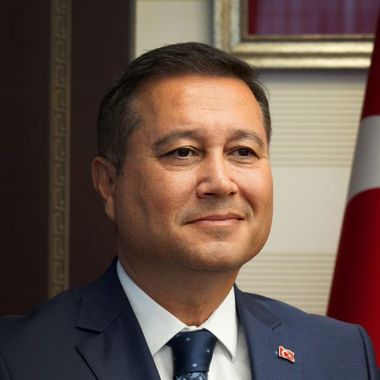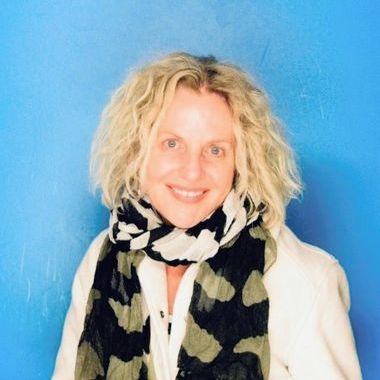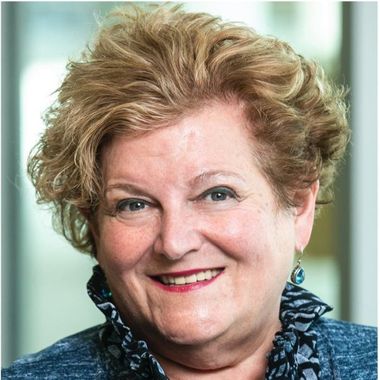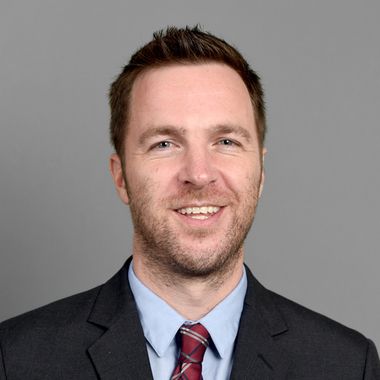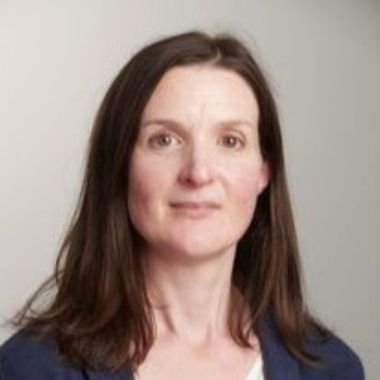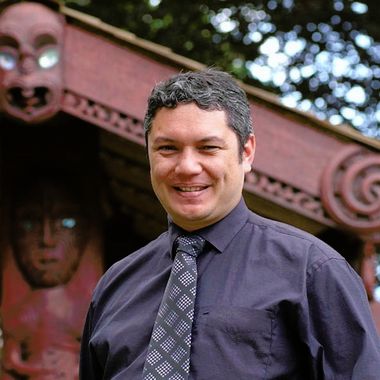ICPA2025 Test Programme Page
Monday 27 October
Opening Ceremony
Plenary Session
Opening Ceremony
8.30am – 8.40am GMT+03:00, 27 October 2025 ‐ 10 mins
Plenary Session
Moderated by Ceren AbdullahWelcome and Introductions
Plenary Session
Welcome and Introductions
8.40am – 8.45am GMT+03:00, 27 October 2025 ‐ 5 mins
Plenary Session
Moderated by Ceren AbdullahSpeakers
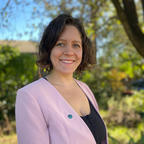
Opening Speech
Plenary Session
Opening Speech
8.45am – 8.55am GMT+03:00, 27 October 2025 ‐ 10 mins
Plenary Session
Moderated by Ceren AbdullahSpeakers

In Memory of Peter Severin, ICPA President
Plenary Session
In Memory of Peter Severin, ICPA President
8.55am – 9.05am GMT+03:00, 27 October 2025 ‐ 10 mins
Plenary Session
Moderated by Ceren AbdullahSpeakers


Host Country Speech
Plenary Session
Host Country Speech
9.05am – 9.35am GMT+03:00, 27 October 2025 ‐ 30 mins
Plenary Session
Moderated by Ceren AbdullahSpeakers

Enis Yavuz YILDIRIM
Judge, General Director, General Directorate of Prison and Detention Houses, MoJ, Türkiye

Wellbeing and Corrections: An Oxymoron? (PID311)
Plenary Session
Wellbeing and Corrections: An Oxymoron? (PID311)
9.35am – 10.30am GMT+03:00, 27 October 2025 ‐ 55 mins
Plenary Session
This presentation defines wellbeing and discusses the barriers to wellbeing created by the system itself, as well as the barriers created by the unresolved trauma of individuals. Practical tips are explored to promote wellbeing for both staff and residents, and how to implement the three levels of trauma work: trauma informed, trauma responsive, and trauma specific.
The voices of those with lived experience will also be shared as we are challenged to understand the impact of the environment on behavior and to rethink the structure of corrections.
Speakers

Dr. Stephanie Covington
Co-Director/International Consultant and Clinician, Center for Gender and Justice, United States
Coffee Break and Exhibition
Break and Exhibition
Coffee Break and Exhibition
10.30am – 11am GMT+03:00, 27 October 2025 ‐ 30 mins
Break and Exhibition
Learning from Cross-Sectional and Longitudinal Studies of all 14 Correctional Services in Canada about the Mental Health and Well-Being of Correctional Workers: A National Focus (PID050)
Plenary Session
Learning from Cross-Sectional and Longitudinal Studies of all 14 Correctional Services in Canada about the Mental Health and Well-Being of Correctional Workers: A National Focus (PID050)
11am – 11.45am GMT+03:00, 27 October 2025 ‐ 45 mins
Plenary Session
Speakers
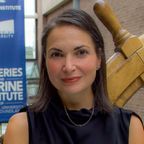
Professor Rosemary Ricciardelli
Professor and Research Chair: Safety, Security, and Wellness, Memorial University of Newfoundland, Canada
Transforming San Quentin Prison in California: Marshaling the Experience and Perspectives of a Multidisciplinary Advisory Council to Improve Prison Staff and Resident Health and Well-being (PID046)
Plenary Session
Transforming San Quentin Prison in California: Marshaling the Experience and Perspectives of a Multidisciplinary Advisory Council to Improve Prison Staff and Resident Health and Well-being (PID046)
11.45am – 12.30pm GMT+03:00, 27 October 2025 ‐ 45 mins
Plenary Session
Speakers

Dr. Brie Williams
Professor of Medicine, Director of Amend, Amend at UCSF, United States
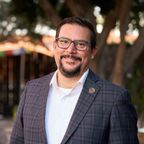

Chance Andes
Warden, San Quentin Rehabilitation Center, California Department of Corrections and Rehabilitation, United States
ICPA Board of Directors Introductions
Plenary Session
ICPA Board of Directors Introductions
12.30pm – 12.45pm GMT+03:00, 27 October 2025 ‐ 15 mins
Plenary Session
Speakers



Kim Ekhaugen
Director of International Cooperation, Directorate of Norwegian Correctional Service

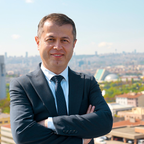

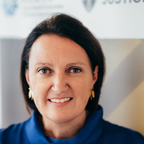


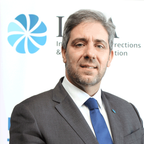
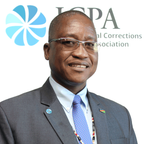
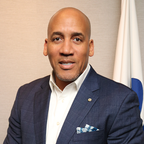
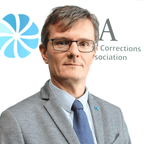
Lunch and Exhibition
Lunch and Exhibition
Lunch and Exhibition
1.10pm – 2pm GMT+03:00, 27 October 2025 ‐ 50 mins
Lunch and Exhibition
Sponsor Presentation: MTC - Retention is the New Recruitment: A Blueprint for Nurturing Talent and Retaining High-Value Employees (PID013)
Thematic Workshop Sessions
Sponsor Presentation: MTC - Retention is the New Recruitment: A Blueprint for Nurturing Talent and Retaining High-Value Employees (PID013)
2pm – 2.30pm GMT+03:00, 27 October 2025 ‐ 30 mins
Thematic Workshop Sessions
Speakers


The Pulse of Recruitment: From Stranger to Suitable Candidate in 3 Weeks at DJI (PID215)
Thematic Workshop Sessions
The Pulse of Recruitment: From Stranger to Suitable Candidate in 3 Weeks at DJI (PID215)
2pm – 2.30pm GMT+03:00, 27 October 2025 ‐ 30 mins
Thematic Workshop Sessions
We will present the structure and philosophy behind The Pulse (Hartslag), the new national recruitment approach developed to respond to persistent staffing shortages. Starting from a fragmented and slow process, DJI analyzed how to improve efficiency while maintaining high standards. A key question was whether recruitment criteria could be adjusted to attract more candidates - and if so, how to do this without compromising on quality.
• Significantly reduced turnaround times
• Higher conversion rates
• Increased satisfaction among both candidates and hiring managers
We will conclude with key lessons learned and practical insights for organizations facing similar workforce challenges. After that we have some time for answering questions of the audience.
Speakers

Jaco Hoogendoorn
Strategic Advisor HR, HR Programmanager, Dutch Custodial Institutions Agency (DJI), Netherlands

Local Solutions, Global Standards: The Community Stakeholder Approach to Youth Detention Reform (PID057)
Thematic Workshop Sessions
Local Solutions, Global Standards: The Community Stakeholder Approach to Youth Detention Reform (PID057)
2pm – 2.30pm GMT+03:00, 27 October 2025 ‐ 30 mins
Thematic Workshop Sessions
Discover how multidisciplinary teams - including mental health specialists, educators, families, and formerly incarcerated youth - provide powerful insights traditional compliance inspections miss. Through compelling case studies and testimonial videos, see how these diverse perspectives drive meaningful reform while helping facilities meet international standards like the Mandela Rules and Convention on the Rights of the Child.
The model's innovation lies in its sustainability: community stakeholders don't just identify problems - they become long-term partners in solution implementation, providing facilities with specialized knowledge and resources often unavailable internally. The custom technology platform streamlines assessments and utilizes data analysis tools to uncover systemic obstacles to reform.
Workshop participants will gain practical tools for identifying and engaging the right community partners, conducting effective assessments, and transforming findings into actionable improvement plans. Whether facing resource constraints, staff resistance, or implementation challenges, you'll leave with strategies to launch community-based assessment in your jurisdiction.
Join pioneering juvenile justice professionals who have used this approach to achieve what seemed impossible: facilities where youth feel genuinely prepared for successful community reintegration, and where international standards are put into practice.
Speakers

Douglas Keillor
Executive Director, Juvenile Justice Advocates International, United States
Global Prison Trends - Well-being Under Pressure (PID141)
Thematic Workshop Sessions
Global Prison Trends - Well-being Under Pressure (PID141)
2pm – 2.30pm GMT+03:00, 27 October 2025 ‐ 30 mins
Thematic Workshop Sessions
With the global prison population reaching an all-time high of 11.5 million, overcrowding, deteriorating conditions, and staff shortages are placing immense pressure on prison systems. At least 120 prison systems are operating beyond capacity - some at over 300% - with serious consequences for physical and mental health, safety, and dignity. Drawing on global data and PRI’s global programmes, the session will examine how prisons are responding to these pressures, including efforts to meet basic health needs, address violence, and support staff well-being in increasingly challenging environments.
The workshop will also highlight the right to vote as a dimension of well-being and dignity in prison. Despite progress in some jurisdictions, millions remain disenfranchised. Participants will discuss how enabling civic participation can promote inclusion, agency, and a rehabilitative culture.
Finally, the session will consider the growing trend of environmental sustainability in prisons. From green infrastructure to vocational training, “green prison” initiatives are emerging as a potential lever to improve well-being and living standards - when implemented meaningfully.
Through data, case studies, and discussion, the workshop invites shared learning on how detention systems are adapting under pressure - and what practical steps can be taken to protect and promote well-being for both prison staff and those under their supervision.
Speakers


Women-Centered Non-Custodial Measures: Developing Gender-Based Strategies of Least Intervention (PID109)
Thematic Workshop Sessions
Women-Centered Non-Custodial Measures: Developing Gender-Based Strategies of Least Intervention (PID109)
2pm – 2.45pm GMT+03:00, 27 October 2025 ‐ 45 mins
Thematic Workshop Sessions
Speakers


Chontit Chuenurah
Director of the Office for the Bangkok Rules and Treatment of Offenders, Thailand Institute of Justice, Thailand

Associate Professor Samantha Jeffries
Associate Professor, Griffith University, Australia

Dr Yodsawadi Thipphayamongkoludom PhD
Project Manager for the Office for the Bangkok Rules and Treatment of Offenders, Thailand Institute of Justice, Thailand
Sponsor Presentation ViaPath: Human-Centered Corrections With AI: Smarter Systems, Safer Connections (PID078)
Thematic Workshop Sessions
Sponsor Presentation ViaPath: Human-Centered Corrections With AI: Smarter Systems, Safer Connections (PID078)
2pm – 2.45pm GMT+03:00, 27 October 2025 ‐ 45 mins
Thematic Workshop Sessions
Traditional methods of monitoring, such as listening to calls or reading personal messages, often expose staff to deeply private, non-threatening content, placing emotional and ethical burdens on both reviewers and those being reviewed. AI offers a privacy-aware alternative, focusing on policy-relevant risks like contraband, violence, or escape planning, while minimizing unnecessary human intrusion.
Real-world examples demonstrate how tools like speech-to-text transcription, GPT-based contextual analysis, and rules-based scoring are enabling smarter oversight aligned with international standards like the Nelson Mandela and Bangkok Rules. The session also highlights AI innovations that promote connection and rehabilitation, including mental health chatbots, self-guided reentry platforms, and trauma-informed learning tools.
Attendees will learn how AI can reduce staff burden, safeguard dignity, and promote safety - charting a responsible path forward for technology in corrections.
Speakers

Christopher Ditto
Senior Vice President of Research & Development, ViaPath Technologies, United States

ICPA Planning and Design Network Meeting PID302
Thematic Workshop Sessions
ICPA Planning and Design Network Meeting PID302
2pm – 3.30pm GMT+03:00, 27 October 2025 ‐ 1 hour 30 mins
Thematic Workshop Sessions
- Meet and collaborate with planning and design professionals from around the world.
- Share current projects and best practice examples from multiple jurisdictions.
- Raise concerns, queries and dilemmas for group input and support.
- Discuss the upcoming planning and design conference in April 2026.
Speakers


Recruiting, Developing and Retaining Diverse Talent to Break Cycles of Reoffending (PID066)
Thematic Workshop Sessions
Recruiting, Developing and Retaining Diverse Talent to Break Cycles of Reoffending (PID066)
2.30pm – 3pm GMT+03:00, 27 October 2025 ‐ 30 mins
Thematic Workshop Sessions
Speakers

Where Is Everybody? A Case Study on the Impact of Strategic Workforce Management on Absence and Attrition in Five English Prisons (PID203)
Thematic Workshop Sessions
Where Is Everybody? A Case Study on the Impact of Strategic Workforce Management on Absence and Attrition in Five English Prisons (PID203)
2.30pm – 3pm GMT+03:00, 27 October 2025 ‐ 30 mins
Thematic Workshop Sessions
This two-year, multi-site case study explores the systemic impact of workforce instability across five privately managed English prisons. Using a mixed-methods approach - combining quantitative data (absence and attrition rates, staff engagement metrics) and qualitative insights (focus groups, exit interviews) - this case study identifies shared challenges, site-specific differences, and the outcomes of targeted interventions.
Key findings highlight gaps in strategic workforce management, including reactive approaches, poor data integration, and limited cross-site learning. A ‘vicious cycle’ of absence and attrition was evident, particularly among new recruits (first 12 months).
Despite challenges, the study also uncovered examples of strong leadership and good practice, such as trauma-informed approaches, enhanced staff engagement, and clearer accountability structures.
A coordinated intervention programme introduced strategic oversight, standardised practices, revised induction and training, and strengthened wellbeing initiatives. These measures led to a significant and sustained improvement in staff stability.
Aligned with the UN Mandela Rules, the findings reinforce the ethical and operational imperative of workforce investment. This case study offers a scalable, evidence-based model for reducing absence and attrition through data-driven, people-centred leadership - supporting safer, more rehabilitative prison environments.
Speakers

Navigating Stormy Seas: Desensitization Strategies to Mitigate Re-Traumatization in Neurodivergent Juveniles in Correctional Settings (PID028)
Thematic Workshop Sessions
Navigating Stormy Seas: Desensitization Strategies to Mitigate Re-Traumatization in Neurodivergent Juveniles in Correctional Settings (PID028)
2.30pm – 3pm GMT+03:00, 27 October 2025 ‐ 30 mins
Thematic Workshop Sessions
Speakers

Sayed Mawismi Sayed Mohamad Mustar
Senior Associate Social Development Officer, Department of Social Welfare, Malaysia
Understanding Prison Climate in Singapore: Examining Institutional Conditions for Effective Rehabilitation (PID132)
Thematic Workshop Sessions
Understanding Prison Climate in Singapore: Examining Institutional Conditions for Effective Rehabilitation (PID132)
2.30pm – 3pm GMT+03:00, 27 October 2025 ‐ 30 mins
Thematic Workshop Sessions
This research study encompasses six institutions within SPS, involving a representative sample of 333 incarcerated individuals and more than 100 staff members, including correctional officers, programme delivery staff, and intelligence officers. This diverse participant pool ensures a holistic representation of the prison ecosystem and captures multiple perspectives on the correctional environment. The study aims to identify which key dimensions of the prison environment have contributed to a rehabilitative atmosphere based on Singapore's local operating conditions, such as the quality and nature of staff-inmate relationships, perceived accessibility and effectiveness of rehabilitation programmes, dynamics of inmate-to-inmate interactions and institutional variations and their effects on rehabilitation and even COVID-19's influence on the correctional environment.
This comprehensive study provides valuable insights into areas requiring attention and establishes a baseline for measuring future reforms. The findings hope to contribute to the broader discourse on creating supportive prison environments that facilitate meaningful rehabilitation while aligning with international best practices in correctional management.
Speakers

Karam Singh
Director, Psychological and Correctional Rehabilitation Division, Singapore Prison Service, Singapore
Empowering Women on Their Journey to Health & Wellness: Introduction to the SAFE Mobile Health App (PID196)
Thematic Workshop Sessions
Empowering Women on Their Journey to Health & Wellness: Introduction to the SAFE Mobile Health App (PID196)
2.45pm – 3.30pm GMT+03:00, 27 October 2025 ‐ 45 mins
Thematic Workshop Sessions
In response to this need, the Self-Assessment for Fem/powerment (SAFE) mobile app, developed by Dr. Emily Salisbury and Interactive Life, Inc., was created to support justice-involved women. Many such women face barriers to wellness due to cost, time constraints, or lack of digital access. Further, because women are frequently motivated to change for the benefit of their children and families (Kennedy et al., 2020), empowering them to first improve their personal wellness is essential.
The SAFE app enables users to assess themselves across eight wellness domains (e.g., Physical, Spiritual, Emotional, Sexual, Social, Financial, Intellectual, & Environmental) and access free online interventions, including micro-skills created by Dr. Stephanie Covington. It links with the Women’s Risk Needs Assessment (WRNA) and supports case managers to use alongside clients to improve motivation. The workshop will discuss the importance of women's well-being and health as it relates to their recidivism, and demonstrate the SAFE app for improved understanding.
Speakers


Dr. Stephanie Covington
Co-Director/International Consultant and Clinician, Center for Gender and Justice, United States
Sponsor Presentation Virtu Medical: From Paper to Precision: How a Caribbean-Born EHR is Revolutionizing Correctional Healthcare (PID307)
Thematic Workshop Sessions
Sponsor Presentation Virtu Medical: From Paper to Precision: How a Caribbean-Born EHR is Revolutionizing Correctional Healthcare (PID307)
2.45pm – 3.30pm GMT+03:00, 27 October 2025 ‐ 45 mins
Thematic Workshop Sessions
Speakers


Enable the Future - Transforming Prisons in England and Wales (PID061)
Thematic Workshop Sessions
Enable the Future - Transforming Prisons in England and Wales (PID061)
3pm – 3.30pm GMT+03:00, 27 October 2025 ‐ 30 mins
Thematic Workshop Sessions
Originating from a range of practitioner experience and academic evidence, the ‘Enable’ programme is an ambitious system-wide, national project to build positive, pro-social and boundaried relationships between prison officers and prisoners in over 100 prisons. This will be done by better training, development and leadership opportunities for prison officers. It will facilitate more stable, safer prison environments that ultimately will lead to a reduction in reoffending and protection of the public.
The workshop will recap the underpinning rationale for reform; describe the programme's main components; examine three core challenges and questions it faces; and show the early findings from the very first 'early adopter' prisons. It will offer attendees the opportunity to understand the latest thinking and experience of a significant prison reform programme for staff in England and Wales, and identify opportunities for application of learning to fellow prison systems.
Speakers
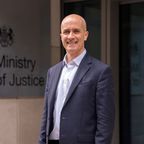
Dominic Herrington
Executive Director, Transforming Delivery, His Majesty's Prisons and Probation Service, Ministry of Justice, United Kingdom
Workplace Safety and Resilience in the Irish Prison Service: Policy, People, and Practice (PID205)
Thematic Workshop Sessions
Workplace Safety and Resilience in the Irish Prison Service: Policy, People, and Practice (PID205)
3pm – 3.30pm GMT+03:00, 27 October 2025 ‐ 30 mins
Thematic Workshop Sessions
Speakers

Breaking Point: Understanding What Drives Staff Turnover in Juvenile Corrections (PID040)
Thematic Workshop Sessions
Breaking Point: Understanding What Drives Staff Turnover in Juvenile Corrections (PID040)
3pm – 3.30pm GMT+03:00, 27 October 2025 ‐ 30 mins
Thematic Workshop Sessions
Speakers

Dr. Kevin Wolff
Associate Professor, John Jay College of Criminal Justice, United States
Risks and Wellbeing for Prison Officers: Job Strain and State of Mind In Romanian Prison Service (PID031)
Thematic Workshop Sessions
Risks and Wellbeing for Prison Officers: Job Strain and State of Mind In Romanian Prison Service (PID031)
3pm – 3.30pm GMT+03:00, 27 October 2025 ‐ 30 mins
Thematic Workshop Sessions
Workplace stressors, such as interpersonal conflicts with colleagues and superiors, inadequate salary, training or career advancement, lack of equipment or defective equipment, bureaucracy, have all been associated with stress outcomes.
A look on the results of the research done by the trade union with the involvement of prison administration in Romania, in the last 10 years, can answer to questions related the state of mind of prison officers and to identify factors of pressure and resources available at the workplace.
Speakers
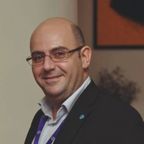
Coffee Break and Exhibition
Break and Exhibition
Coffee Break and Exhibition
3.30pm – 4pm GMT+03:00, 27 October 2025 ‐ 30 mins
Break and Exhibition
Recommendations for Efficient, Secure, and Structural Prison Design: A Step Toward Promoting Wellbeing in Incarceration (PID065)
Thematic Workshop Sessions
Recommendations for Efficient, Secure, and Structural Prison Design: A Step Toward Promoting Wellbeing in Incarceration (PID065)
4pm – 4.30pm GMT+03:00, 27 October 2025 ‐ 30 mins
Thematic Workshop Sessions
Nine selected prisons were examined in detail using qualitative methods, on-site inspections, and plan analyses. The focus was placed on the needs of all user groups: management, staff, and inmates.
Based on the findings, a catalogue of measures and practical planning recommendations was developed. Key areas of emphasis included wellbeing, prison design, green spaces, digitalisation, and social spaces.
Furthermore, a dedicated study of unaccompanied pathways was conducted, providing deeper insight into the spatial and organizational structures of Austrian prisons. This study focused on the specific use case of ‘unaccompanied paths’ to investigate factors and dependencies influencing the implementation of this concept. The aim was to categorise the interactions of these factors, identify dependencies, and clarify the responsibilities of decision-makers regarding resocialisation and sustainable security.
Speakers

Dr Hildegard Sint
Academic and Research Staff, University of Applied Sciences Campus Vienna, Austria
Disability Justice and the Nelson Mandela Rules: Rethinking Mainstream in Custodial Settings (PID144)
Thematic Workshop Sessions
Disability Justice and the Nelson Mandela Rules: Rethinking Mainstream in Custodial Settings (PID144)
4pm – 4.30pm GMT+03:00, 27 October 2025 ‐ 30 mins
Thematic Workshop Sessions
Backed by global research occurring with support from the Winston Churchill Trust, this presentation will deliver a thought-provoking exploration of international Disability Justice models, offering fresh insights into how custodial settings can embed humane, inclusive practices aligned with the Nelson Mandela Rules.
Drawing on findings from the Australian Disability Royal Commission, this session will uncover systemic failures that prevent equitable treatment in justice settings - from ineffective screening and identification processes to the evidence of disproportionate use of solitary confinement. Queensland’s reform efforts will be highlighted, alongside global perspectives that help shape practical solutions for disability-inclusive justice.
This session is more than an exploration of policy - it’s a call to action for justice professionals, advocates, and policymakers to drive meaningful change. Through a collaborative and solutions-focused dialogue, we will examine key barriers, share best practices, and move beyond outdated approaches to incarceration and rehabilitation for individuals with disabilities.
Join us as we reimagine disability-inclusive justice and work toward a system that challenges outdated thinking and culture, while prioritising dignity, meaningful support, and effective intervention.
Speakers

Towards Safer Custody: A Systematic Review of Interventions Aimed at Preventing Unexpected Deaths Custody in Australia, Canada, and New Zealand (PID129)
Thematic Workshop Sessions
Towards Safer Custody: A Systematic Review of Interventions Aimed at Preventing Unexpected Deaths Custody in Australia, Canada, and New Zealand (PID129)
4pm – 4.30pm GMT+03:00, 27 October 2025 ‐ 30 mins
Thematic Workshop Sessions
The focus of this study on Australia, Canada and New Zealand highlights the persistent and sustained over representation of First Nations peoples in carceral systems and strengthens the evidence around the need for culturally appropriate therapeutic initiatives. Our synthesis included upstream strategies and procedural approaches, as well as perspectives from those with lived experience of incarceration, correctional staff and emergency physicians. Peer support programs have potential to reduce deaths from self-harm or suicide. Such programs must include clear objectives, sustainable resourcing, and provide net benefits to both individual ‘at risk’ who receive support and the peers who provide that support.
Our findings underscore the importance of evaluating the effectiveness of prevention strategies to reduce unexpected deaths in custody. Previous evaluations, although scarce, have shown the adoption of effective psychiatric practices can reduce suicide related deaths in custody. In the absence of such evaluations, it is unclear whether current efforts are achieving their intended outcomes. Of concern is the dearth of evidence or policies around other causes of deaths. In this context, training to frontline staff and building cross sectoral communication to better meet the needs of emergency healthcare in custodial settings is crucial and requires sustainable investment.
Speakers


Professor Elizabeth Sullivan
Clinical Research Lead in Custodial Health | Professor of Equity and Health, Justice Health and Forensic Mental Health Network | The University of Newcastle, Australia

ICPA’s Practice Transfer Advisory Committee Workshop: 2025 Focus on Peer Mentoring and Peer Support in Correctional Practice (PID304)
Thematic Workshop Sessions
ICPA’s Practice Transfer Advisory Committee Workshop: 2025 Focus on Peer Mentoring and Peer Support in Correctional Practice (PID304)
4pm – 4.45pm GMT+03:00, 27 October 2025 ‐ 45 mins
Thematic Workshop Sessions
Speakers
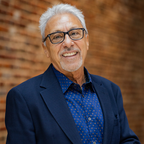


ICPA Juvenile Network: 45-Minute Roundtable Networking Session (PID315)
Thematic Workshop Sessions
ICPA Juvenile Network: 45-Minute Roundtable Networking Session (PID315)
4pm – 4.45pm GMT+03:00, 27 October 2025 ‐ 45 mins
Thematic Workshop Sessions
Speakers

Sayed Mawismi Sayed Mohamad Mustar
Senior Associate Social Development Officer, Department of Social Welfare, Malaysia
ICPA Network on External Prison Oversight and Human Rights (PID301)
Thematic Workshop Sessions
ICPA Network on External Prison Oversight and Human Rights (PID301)
4pm – 4.45pm GMT+03:00, 27 October 2025 ‐ 45 mins
Thematic Workshop Sessions
Speakers

Dr. Ivan Zinger
Correctional Investigator, Canada's Office of the Correctional Investigator, Canada
Networking Session
Thematic Workshop Sessions
Networking Session
4pm – 5.30pm GMT+03:00, 27 October 2025 ‐ 1 hour 30 mins
Thematic Workshop Sessions
Natalie Boal, Executive Director, ICPA, Australia
Rob Jeffreys, Board Member, ICPA, United States
Speakers


Rethinking Prison Design: Health, Well-being, and a Framework for Systemic Change (PID127)
Thematic Workshop Sessions
Rethinking Prison Design: Health, Well-being, and a Framework for Systemic Change (PID127)
4.30pm – 5pm GMT+03:00, 27 October 2025 ‐ 30 mins
Thematic Workshop Sessions
This presentation invites delegates to explore a bold and timely reimagining of prison design, where the well-being of people who live and work in custody is placed at the heart of institutional purpose. Based on the international research behind the 2022 Routledge book Health and Well-being in Prison Design, this session introduces a practical framework for designing prisons that promote health, rehabilitation, and human dignity.
Drawing on fieldwork conducted in Chile, the USA, Norway, and Finland - as well as insights from UN and WHO advisors - Dr Alberto Urrutia-Moldes will unpack how different prison systems define and apply (or overlook) health and well-being in the design process. The findings reveal a persistent disconnect between stated rehabilitative goals and the lived reality of prison environments.
The session also identifies six essential dimensions for driving change in prison design, including decision-making, operational transparency, and the strategic use of light, space, and coherence.
Whether you're an architect, policymaker, academic, or practitioner working in justice or health, this talk offers a unique lens on how design decisions reflect - and shape - societal values. Join us to discover how architecture can become a driver for systemic change and more humane, effective prison systems.
Speakers

Dr Alberto Urrutia-Moldes
Researcher and Lecturer, University of Westminster, United Kingdom
Dying in Prison: Advancing End-of-Life Care, Staff Support, and Systemic Reform Through Death Cafes and Advance Care Planning in a U.S. Women’s Prison (PID175)
Thematic Workshop Sessions
Dying in Prison: Advancing End-of-Life Care, Staff Support, and Systemic Reform Through Death Cafes and Advance Care Planning in a U.S. Women’s Prison (PID175)
4.30pm – 5pm GMT+03:00, 27 October 2025 ‐ 30 mins
Thematic Workshop Sessions
Speakers

Tosha Big Eagle
Lead Coordinator and Graduate Research Lead, Washington State University, United States

L. Elizabeth Shatswell
Correctional Education Manager and Academic Partner (UPS), JSTOR Labs Ithaka and University of Puget Sound, United States
Layers of Risk: Understanding Use of Force Through the Swiss Cheese Model (PID233)
Thematic Workshop Sessions
Layers of Risk: Understanding Use of Force Through the Swiss Cheese Model (PID233)
4.30pm – 5pm GMT+03:00, 27 October 2025 ‐ 30 mins
Thematic Workshop Sessions
Institutional: Gender- and age-specific challenges in managing vulnerability
Managerial/Policy: Variation in oversight and learning systems
Speakers

Sarah Ashcroft
Head of Operational Response and Resilience Unit and International Engagement Lead, HMPPS, England, United Kingdom

It Takes a Village: Centering Children and Families in Conversations on Incarceration and Well-Being (PID094)
Thematic Workshop Sessions
It Takes a Village: Centering Children and Families in Conversations on Incarceration and Well-Being (PID094)
4.45pm – 5.30pm GMT+03:00, 27 October 2025 ‐ 45 mins
Thematic Workshop Sessions
Annelyn, a daughter whose father was incarcerated, knows firsthand how a parent’s imprisonment shapes a child’s world - emotionally, socially, and structurally. This session sheds light on the often-overlooked impact of incarceration on families and children, not as passive victims, but as essential partners in successful reintegration.
Drawing on Annelyn’s lived experience, alongside systemic insights and research-based evidence, the session challenges participants to reconsider what true justice and long-term support look like. It calls for a shift in perspective: from punishment alone to rebuilding relationships - because it not only takes a village to raise a child, but we all need one.
For corrections professionals, community workers, service providers, and justice practitioners, this is an invitation to reimagine the systems we build, and the communities we strengthen, together.
Speakers


ICPA Intelligence Network: Corrections Intelligence Network Group Launch (PID321)
Thematic Workshop Sessions
ICPA Intelligence Network: Corrections Intelligence Network Group Launch (PID321)
4.45pm – 5.30pm GMT+03:00, 27 October 2025 ‐ 45 mins
Thematic Workshop Sessions
Speakers


Shawn Springsteen
Commanding Officer of the Intelligence Bureau, Suffolk County Sheriffs Office
The Community Corrections Network (CCN) Meeting (PID320)
Thematic Workshop Sessions
The Community Corrections Network (CCN) Meeting (PID320)
4.45pm – 5.30pm GMT+03:00, 27 October 2025 ‐ 45 mins
Thematic Workshop Sessions
Speakers

Best Practice Prison Landscapes – Inspiration and Application of Design Principles (PID128)
Thematic Workshop Sessions
Best Practice Prison Landscapes – Inspiration and Application of Design Principles (PID128)
5pm – 5.30pm GMT+03:00, 27 October 2025 ‐ 30 mins
Thematic Workshop Sessions
The role of landscape design in prisons is multifaceted and plays a crucial part in shaping the environment within correctional facilities. Effective landscape design can significantly impact the intensity of the prison experience for persons in custody, staff, and visitors. By incorporating elements of biodiversity, trauma-informed design, and considerations for people with disabilities, neurodivergence, and different genders, landscape design can create a more humane and supportive environment.
In conclusion, the "Prison Landscape Design Principles" document provides valuable insights into how prison landscape can be best applied, and this presentation will showcase Australian and International examples to enhance the environment for people in custody, staff, and visitors.
Speakers

The Norwegian Directorate of Correctional Services – CAMEO Programme, A Project for Elderly Inmates (PID211)
Thematic Workshop Sessions
The Norwegian Directorate of Correctional Services – CAMEO Programme, A Project for Elderly Inmates (PID211)
5pm – 5.30pm GMT+03:00, 27 October 2025 ‐ 30 mins
Thematic Workshop Sessions
Speakers

Kim Ekhaugen
Director of International Cooperation, Directorate of Norwegian Correctional Service
Building a High-Performance Culture Through Competency, Connection and a Holistic Wellness Support Framework in the Singapore Prison Service (PID084)
Thematic Workshop Sessions
Building a High-Performance Culture Through Competency, Connection and a Holistic Wellness Support Framework in the Singapore Prison Service (PID084)
5pm – 5.30pm GMT+03:00, 27 October 2025 ‐ 30 mins
Thematic Workshop Sessions
To strengthen its workforce, SPS has enhanced its recruitment efforts through extensive publicity and outreach efforts, green harvesting, and internship programmes with tertiary institutions, creating sustained interest in corrections careers. Enhanced career development pathways, such as job rotations, seek to expose and strengthen our officers in different capacities.
There are also concerted efforts within SPS for a systemic and holistic approach in staff wellbeing. The PRISHealth framework takes on a broad approach to promote physical, social, mental, and financial wellness through various initiatives (e.g., events; talks) for fitter, healthier and happier workforce.
SPS’s comprehensive training framework combines operational excellence with soft skills development, supported by mentorship and leadership development programmes. SPS is fostering a coach-like culture to develop future-ready leaders, emphasising the integration of coaching mindsets and behaviours into daily work interactions.
Townhalls, Leadership Circles, and Mug Meet-ups are three key culture-building initiatives which serve multiple strategic purposes - from fostering organisational transparency and trust between leadership and ground staff, to creating informal networking spaces that strengthen cross-divisional relationships.
With these strategies, SPS has significantly transformed over the years from a custodial agency to a correctional service that supports the lives of offenders, and its staff spearheading the change.
Speakers

Rashida Mohamed Zain
Senior Assistant Director, Principal Psychologist, Singapore Prison Service, Singapore

Luke Leong
Superintendent, Institution Tanah Merah, Singapore Prison Service, Singapore
Host Welcome Reception (Bus Pick Up 18.30)
Welcome Reception
Host Welcome Reception (Bus Pick Up 18.30)
6.30pm – 11pm GMT+03:00, 27 October 2025 ‐ 4 hours 30 mins
Welcome Reception
Buses will depart from the hotel, from the Conrad Ballroom Foyer (R Floor) Entrance at 18:30. Please arrive promptly.

There will be the following transportation options:
- Departure: Beşiktaş Barbaros Pier at 18:15
- Arrival: Yeniköy Pier (3 minutes walking distance to the mansion)
- Return: Yeniköy Pier to Beşiktaş Barbaros Pier at 23:15
- Available for guests exceeding the boat capacity
- Buses will transport guests directly to the mansion
- Transportation from the hotel to Beşiktaş Barbaros Pier is available upon request (for those who prefer not to take the 15-minute walk)
Tuesday 28 October
Managing the Wicked Nature of Violence in Prison: A Look Through the PRISM (PID147)
Plenary Session
Managing the Wicked Nature of Violence in Prison: A Look Through the PRISM (PID147)
9am – 10am GMT+03:00, 28 October 2025 ‐ 1 hour
Plenary Session
Speakers

Network Introductions
Plenary Session
Network Introductions
10am – 10.30am GMT+03:00, 28 October 2025 ‐ 30 mins
Plenary Session
Moderated by Natalie Boal, Executive Director, ICPA, AustraliaSpeakers


Prof. Michele Deitch
Director, Prison and Jail Innovation Lab at the University of Texas at Austin, USA




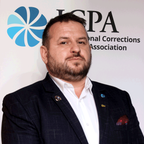

Simon Bonk
Chief Research Officer & Director New Business Development, Telio Management, Canada
Coffee Break and Exhibition
Break and Exhibition
Coffee Break and Exhibition
10.30am – 11am GMT+03:00, 28 October 2025 ‐ 30 mins
Break and Exhibition
Inventing Corrections, Debating the Permissible in Punishment (PID236)
Plenary Session
Inventing Corrections, Debating the Permissible in Punishment (PID236)
11am – 11.45am GMT+03:00, 28 October 2025 ‐ 45 mins
Plenary Session
Speakers

Preserving Humanity in Crisis-Leading Correctional Systems Affected by Armed Conflict (PID213)
Plenary Session
Preserving Humanity in Crisis-Leading Correctional Systems Affected by Armed Conflict (PID213)
11.45am – 12.30pm GMT+03:00, 28 October 2025 ‐ 45 mins
Plenary Session
This panel will bring together Heads of Service from Ethiopia, Lebanon, Burkina Faso, and Ukraine to share their experiences leading correctional services during armed conflict. They will discuss how they and their teams have adapted professionally and personally to overcome unprecedented challenges to safeguard the wellbeing of detainees and staff. Designed as an interactive discussion, the panel will engage both the speakers and conference participants and will be moderated by the Head of the Persons Deprived of Liberty Unit at the International Committee of the Red Cross (ICRC).
Speakers
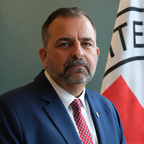
Terry Hackett
Head of Unit, Persons Deprived of Liberty, International Committee of the Red Cross (ICRC), Switzerland

Oleksandr Nikonishyn
Deputy Head, Department for the Execution of Criminal Sentences of the Ministry of Justice of Ukraine, Ukraine

Yenus Mulu Takele
Commissioner General, Ethiopian Federal Prison Commission (EFPC), Ethiopia

Judge Raja S. Abinader
Head, Prisons Directorate, Lebanese Ministry of Justice, Lebanon
Lunch and Exhibition
Lunch and Exhibition
Lunch and Exhibition
12.30pm – 1.30pm GMT+03:00, 28 October 2025 ‐ 1 hour
Lunch and Exhibition
Outcomes of Peer-Facilitated Trauma Interventions: Impact on the Inside (PID023)
Thematic Workshop Sessions
Outcomes of Peer-Facilitated Trauma Interventions: Impact on the Inside (PID023)
1.30pm – 2pm GMT+03:00, 28 October 2025 ‐ 30 mins
Thematic Workshop Sessions
Speakers

The Development of a National Healthy Prisons Framework in the Irish Prison Service (PID210)
Thematic Workshop Sessions
The Development of a National Healthy Prisons Framework in the Irish Prison Service (PID210)
1.30pm – 2pm GMT+03:00, 28 October 2025 ‐ 30 mins
Thematic Workshop Sessions
Speakers

Change in the Correctional Field: Evidence-Based Strategies That Include Science Translation (PID140)
Thematic Workshop Sessions
Change in the Correctional Field: Evidence-Based Strategies That Include Science Translation (PID140)
1.30pm – 2pm GMT+03:00, 28 October 2025 ‐ 30 mins
Thematic Workshop Sessions
Speakers

(CANCELLED) Transforming Corrections Through Leadership: Ms. Nadria Brown’s Pioneering Role in Advancing Staff Wellbeing, Mental Health, Workplace Safety, and Systemic Innovation in Jamaica (PID110)
Thematic Workshop Sessions
(CANCELLED) Transforming Corrections Through Leadership: Ms. Nadria Brown’s Pioneering Role in Advancing Staff Wellbeing, Mental Health, Workplace Safety, and Systemic Innovation in Jamaica (PID110)
1.30pm – 2pm GMT+03:00, 28 October 2025 ‐ 30 mins
Thematic Workshop Sessions
Speakers

Nadria Brown
Project Management Specialist, Department of Correctional Services, Jamaica
More Than Just Walls: Designing Correctional Environments that Heal, Not Harm (PID072)
Thematic Workshop Sessions
More Than Just Walls: Designing Correctional Environments that Heal, Not Harm (PID072)
1.30pm – 2pm GMT+03:00, 28 October 2025 ‐ 30 mins
Thematic Workshop Sessions
Speakers

Dr. Deanna Dwenger
Chief Behavioral Health Advisor, Psychologist, Elevatus Architecture, United States

Sponsor Presentation Telio: Community as the Missing Link: Reframing Corrections Through Partnership and Co-production (PID308)
Thematic Workshop Sessions
Sponsor Presentation Telio: Community as the Missing Link: Reframing Corrections Through Partnership and Co-production (PID308)
1.30pm – 2.15pm GMT+03:00, 28 October 2025 ‐ 45 mins
Thematic Workshop Sessions
-
Rethinking metrics: from recidivism to economic contribution, civic participation, and social capital
-
Reimagining community corrections: from supervisory models to restorative approaches
-
The role of storytelling and public narrative in advancing justice reform
-
Innovations that support Indigenous reconciliation, racial equity, and a green social agenda (even if not currently a political priority)
-
Practical pathways for implementation through partnerships with academia, civil society, and experts with lived experience
Speakers

Simon Bonk
Chief Research Officer & Director New Business Development, Telio Management, Canada


Terry Hackett
Head of Unit, Persons Deprived of Liberty, International Committee of the Red Cross (ICRC), Switzerland

Professor Rosemary Ricciardelli
Professor and Research Chair: Safety, Security, and Wellness, Memorial University of Newfoundland, Canada
Unpacking the Complexity of Prison Visitation and its Effects on Post-Release Reoffending (PID117)
Thematic Workshop Sessions
Unpacking the Complexity of Prison Visitation and its Effects on Post-Release Reoffending (PID117)
1.30pm – 2.15pm GMT+03:00, 28 October 2025 ‐ 45 mins
Thematic Workshop Sessions
Speakers

Dr. E. Rely Vîlcică
Associate Professor, Temple University, Department of Criminal Justice, United States
ICPA Research and Development Network Meeting (PID316)
Thematic Workshop Sessions
ICPA Research and Development Network Meeting (PID316)
1.30pm – 3pm GMT+03:00, 28 October 2025 ‐ 1 hour 30 mins
Thematic Workshop Sessions
1. A summary of this past year’s Network activities;
2. Informal discussion with this year’s ICPA Distinguished Scholar, Professor David Cooke;
3. Presentation on the research activities of the Directorate General of Prisons and Detention Houses in Türkiye;
4. Network members invited to give brief, 5-minute summaries of their current and/or planned research;
5. Discussion of Network priorities and projects for 2026-27.
Speakers


From ACEs to Action: Trauma-Informed Strategies for Mitigating Harm in Correctional Settings (PID111)
Thematic Workshop Sessions
From ACEs to Action: Trauma-Informed Strategies for Mitigating Harm in Correctional Settings (PID111)
2pm – 2.30pm GMT+03:00, 28 October 2025 ‐ 30 mins
Thematic Workshop Sessions
In addition to the empirical results, this session will highlight the implementation of two key trauma mitigation initiatives: trauma-focused interventions for incarcerated individuals and trauma-informed training for staff. The session will include implementation challenges related to each and qualitative and quantitative data on outcomes.
Together, this research and applied interventions offer a model for how correctional agencies can shift from punitive frameworks to trauma-responsive approaches that promote safety, rehabilitation and long-term community reintegration.
Speakers

Transforming Restrictive Housing: A Health-Focused, Staff-Led Model for High-Risk Prison Populations (PID122)
Thematic Workshop Sessions
Transforming Restrictive Housing: A Health-Focused, Staff-Led Model for High-Risk Prison Populations (PID122)
2pm – 2.30pm GMT+03:00, 28 October 2025 ‐ 30 mins
Thematic Workshop Sessions
Speakers


Psychological Supervision and Peer Intervision in Correctional Work. How Can it be Beneficial? (PID118)
Thematic Workshop Sessions
Psychological Supervision and Peer Intervision in Correctional Work. How Can it be Beneficial? (PID118)
2pm – 2.30pm GMT+03:00, 28 October 2025 ‐ 30 mins
Thematic Workshop Sessions
In Poland, correctional staff face additional organizational stressors, such as rigid hierarchies and low autonomy, making supportive professional structures even more essential. While access to supervision varies, emerging recommendations emphasize the need for trauma-informed, protected-time supervision and the development of peer-support networks, both formal and informal. These systems not only safeguard the mental health of professionals but also directly influence the quality of care delivered to incarcerated populations.
Supervision and intervision are not luxuries; they are evidence-based necessities. Embedding them into institutional policy is key to building sustainable correctional mental health systems where staff wellbeing and treatment integrity go hand in hand.
Speakers


Dignity by Design: Integrating Data, Design, and Dynamic Relationships in Young Adult Corrections (PID058)
Thematic Workshop Sessions
Dignity by Design: Integrating Data, Design, and Dynamic Relationships in Young Adult Corrections (PID058)
2pm – 2.30pm GMT+03:00, 28 October 2025 ‐ 30 mins
Thematic Workshop Sessions
Speakers

Chloe Aquart
Initiative Director, Restoring Promise, Vera Institute of Justice, United States

Selma Djokovic
Associate Director of Research, Restoring Promise, Vera Institute of Justice, United States
Sponsor Presentation Mi-Case: There’s a Rulebook, But No Instructions: Navigating Correctional Reform Through Shared Learning, Jurisdictional Innovation, and System Diversity (PID309)
Thematic Workshop Sessions
Sponsor Presentation Mi-Case: There’s a Rulebook, But No Instructions: Navigating Correctional Reform Through Shared Learning, Jurisdictional Innovation, and System Diversity (PID309)
2.15pm – 3pm GMT+03:00, 28 October 2025 ‐ 45 mins
Thematic Workshop Sessions
Speakers


Transforming Community Corrections with Digital Technologies: A Queensland Corrective Services Case Study (PID421)
Thematic Workshop Sessions
Transforming Community Corrections with Digital Technologies: A Queensland Corrective Services Case Study (PID421)
2.15pm – 3pm GMT+03:00, 28 October 2025 ‐ 45 mins
Thematic Workshop Sessions
Speakers

(CANCELLED) Rehabilitation and Reintegration in Africa: Bridging Traditional Justice and Contemporary Corrections (PID212)
Thematic Workshop Sessions
(CANCELLED) Rehabilitation and Reintegration in Africa: Bridging Traditional Justice and Contemporary Corrections (PID212)
2.15pm – 3pm GMT+03:00, 28 October 2025 ‐ 45 mins
Thematic Workshop Sessions
Discover how community-based models emphasizing reconciliation, restitution, and social harmony are being re-evaluated for their relevance in addressing prison overcrowding, stigma, and post-release challenges. Through case studies and practical examples, the session will highlight African-led innovations and the growing contributions of civil society, faith-based organizations, and regional bodies like the African Commission on Human and Peoples’ Rights.
Looking forward, the panel will advocate for a continental and global dialogue to develop a Model Law on Offender Rehabilitation and Reintegration. Rooted in African values of communal responsibility and restorative justice, this initiative seeks to inspire sustainable justice reforms and inclusive development.
Don’t miss this opportunity to join thought leaders and changemakers as we reimagine justice in Africa. Be part of the dialogue shaping a more humane and effective criminal justice system.
Speakers

Sylvester Nwakuche
Controller General of Corrections, Nigerian Correctional Service, Nigeria

Raphael Tuhafeni Hamunyela
Commissioner General, Namibian Correctional Service, Namibia

Makgothi Samuel Thobakgale
National Commissioner, Department of Correctional Service, Department of Correctional Service South Africa, South Africa
Grief‑Responsive Corrections: Embedding Trauma‑Informed Grief Care for Safer, Healthier Prisons and Communities (PID124)
Thematic Workshop Sessions
Grief‑Responsive Corrections: Embedding Trauma‑Informed Grief Care for Safer, Healthier Prisons and Communities (PID124)
2.30pm – 3pm GMT+03:00, 28 October 2025 ‐ 30 mins
Thematic Workshop Sessions
Speakers

The Health and Wellbeing of Finnish Prisoners (Wattu IV) – How to Conduct a Multimethod Prison Study, and Selected Results (PID137)
Thematic Workshop Sessions
The Health and Wellbeing of Finnish Prisoners (Wattu IV) – How to Conduct a Multimethod Prison Study, and Selected Results (PID137)
2.30pm – 3pm GMT+03:00, 28 October 2025 ‐ 30 mins
Thematic Workshop Sessions
The aim of the WattuIV study is to: obtain information on the health, mental health disorders and social status of people living in prison; promote their health, functional capacity, wellbeing and reintroduction to society; strengthen the continuity of care and service pathways; produce information to support the development of prison social welfare services in general. This presentation discusses the health and wellbeing of prisoners more diversely than before from several different perspectives. In addition to results, the audience will hear a number of recommendations for practice and future research.
Speakers

Mika Rautanen
Head of Department, Research Manager, Health Care Services for Prisoners, Finnish Institue for Health and Welfare, Finland
From Burnout to Well-Being: Organizational Policies and Strategies in 2025's European Probation Systems (PID174)
Thematic Workshop Sessions
From Burnout to Well-Being: Organizational Policies and Strategies in 2025's European Probation Systems (PID174)
2.30pm – 3pm GMT+03:00, 28 October 2025 ‐ 30 mins
Thematic Workshop Sessions
The personal and institutional efforts invested in honing probation professionals to work toward reentry and social reintegration with offenders, even (or especially) those prone to high-risk crimes, are threatened to be lost to burnout. Without efficient policies and measures, probation agencies lose experienced staff to a phenomenon that affects all professions.
Join us to learn where we stand now and share insight on the future of organizational policies for staff wellbeing.
Speakers

Design Principles for Prison Landscapes: Security, Biodiversity and Wellbeing (PID086)
Thematic Workshop Sessions
Design Principles for Prison Landscapes: Security, Biodiversity and Wellbeing (PID086)
2.30pm – 3pm GMT+03:00, 28 October 2025 ‐ 30 mins
Thematic Workshop Sessions
Speakers

Prof Dominique Moran
Professor of Carceral Geography, University of Birmingham, United Kingdom

Emma Widdop
Research Associate and Lecturer in Landscape and Sustainable Urbanism, University of Birmingham and Birmingham City University, United Kingdom
Coffee Break and Exhibition
Break and Exhibition
Coffee Break and Exhibition
3pm – 3.30pm GMT+03:00, 28 October 2025 ‐ 30 mins
Break and Exhibition
Correctional Officer Health – Addressing the Hidden Crisis in Correctional Work Environments (PID032)
Thematic Workshop Sessions
Correctional Officer Health – Addressing the Hidden Crisis in Correctional Work Environments (PID032)
3.30pm – 4pm GMT+03:00, 28 October 2025 ‐ 30 mins
Thematic Workshop Sessions
Despite these risks, most research relies on self-reported surveys focused on stress and burnout, with little attention to diagnosable mental health conditions, musculoskeletal injuries, or environmental exposures. Studies are rarely experimental or longitudinal, and critical outcomes like absenteeism and turnover are understudied. Correctional staff also face unique environmental hazards, including infectious diseases, poor ventilation, and exposure to toxic substances, all exacerbated by chronic understaffing and institutional barriers to research.
Speakers

The Evolving Role of Community Volunteers in Offender Reintegration: An Example of the Hogoshi System in Japan (PID136)
Thematic Workshop Sessions
The Evolving Role of Community Volunteers in Offender Reintegration: An Example of the Hogoshi System in Japan (PID136)
3.30pm – 4pm GMT+03:00, 28 October 2025 ‐ 30 mins
Thematic Workshop Sessions
This presentation explores how these volunteers contribute to the rehabilitation and reintegration of offenders within local communities in Japan, emphasizing theoretical frameworks such as desistance theory and social capital theory. The discussion will explore Japan’s unique institutional structures that support volunteer participation, highlighting distinctive features and strengths of the Japanese approach. Through this exploration, the presentation aims to offer insights into how community involvement, grounded in strong theoretical foundations, can enhance traditional criminal justice practices and contribute to sustainable offender rehabilitation.
Speakers

Ayaka Takai
Deputy Director, International Affairs Office at the Rehabilitation Bureau of the Ministry of Justice, Japan

Koichi Hayashi
Section Chief of Rehabilitation Service Development Division, Rehabilitation Bureau, Ministry of Justice, Japan

Miki Yaegashi
Assistant Section Chief of Parole, Supervision Division, Rehabilitation Bureau, Ministry of Justice, Japan
Transforming Onboarding and Training in Correctional Healthcare: A Virtual Approach (PID180)
Thematic Workshop Sessions
Transforming Onboarding and Training in Correctional Healthcare: A Virtual Approach (PID180)
3.30pm – 4pm GMT+03:00, 28 October 2025 ‐ 30 mins
Thematic Workshop Sessions
Speakers

Kristin Simard
Clinical Educator, Corrections Health Services with Recovery Alberta, Canada

Jillian Siemieniuk
Clinical Educator, Corrections Health Services with Recovery Alberta, Canada
Community Mobilisation in The Singapore Prison Service (PID085)
Thematic Workshop Sessions
Community Mobilisation in The Singapore Prison Service (PID085)
3.30pm – 4pm GMT+03:00, 28 October 2025 ‐ 30 mins
Thematic Workshop Sessions
Speakers

Luke Leong
Superintendent, Institution Tanah Merah, Singapore Prison Service, Singapore
Towards a Rehabilitative Prison Environment: Insights from Prisoners and Prison Officers in Namibia (PID234)
Thematic Workshop Sessions
Towards a Rehabilitative Prison Environment: Insights from Prisoners and Prison Officers in Namibia (PID234)
3.30pm – 4pm GMT+03:00, 28 October 2025 ‐ 30 mins
Thematic Workshop Sessions
The study adopted an appreciative enquiry approach, asking prisoners to tell stories about when they had felt most supported by the prison’s rehabilitative efforts, then examining these stories in detail to understand the dynamics of these moments when things worked well. Building on this approach, the study also asked staff at all levels - from frontline security to specialist programmes - to speak of times when they had been able to do their best work in supporting prisoners’ rehabilitation.
The stories that unfolded revealed remarkable convergence across both female and male prisoner groups, as well as both aligning with prison officers, in what made a prison environment conducive to rehabilitation. Equally, all groups could point to when things went wrong and the prison became a brake rather than a facilitator or amplifier of positive changes. The paper gives voice to prisoners and prison officers as experts by experience and contributes to the growing dialogue and international research on rehabilitative prison environments.
Speakers

Experiences of the Formerly Incarcerated Transitions (FIT) Clinic Initiative Connecting Formerly Incarcerated People With Community Healthcare in New Orleans, Louisiana (USA) (PID113)
Thematic Workshop Sessions
Experiences of the Formerly Incarcerated Transitions (FIT) Clinic Initiative Connecting Formerly Incarcerated People With Community Healthcare in New Orleans, Louisiana (USA) (PID113)
3.30pm – 4pm GMT+03:00, 28 October 2025 ‐ 30 mins
Thematic Workshop Sessions
Transitional care coordination between carceral settings and community health centers is essentially non-existent or is haphazard and inadequate. Individuals are often released without medical records, medications, or follow up medical care. Recently released individuals have a twelve-times increased risk of death within the first two weeks of release and up to 40 times increased risk of overdose immediately upon release.
The FIT Clinic Initiative is working to change these statistics. Most immediately, in that critical post-release period, the program connects people transitioning out of incarceration with community health clinics for medical, mental health, and substance use disorders within 2 weeks of release. Our program success is based on community health workers with lived experience of incarceration and successful reentry.
Speakers

Anjali Niyogi
Associate Professor at Tulane, Director, Formerly Incarcerated Transitions (FIT) Clinic Initiative, United States
ICPA Staff Training and Development Network: Advancing Correctional Workforce Excellence: STDN Achievements & Partnerships (2024–2025) (PID303)
Thematic Workshop Sessions
ICPA Staff Training and Development Network: Advancing Correctional Workforce Excellence: STDN Achievements & Partnerships (2024–2025) (PID303)
3.30pm – 5pm GMT+03:00, 28 October 2025 ‐ 1 hour 30 mins
Thematic Workshop Sessions
Strategic EU Partnerships: Projects like INTEGRATE (mentorship programs) and PO21 (EU workforce standards) enhanced staff support systems.
Speakers


Douglas Dretke
Director of the Office of Comparative and International Education and Leadership, Sam Houston State University, United States
Who is ICPA? An Informal Q&A with the President and Executive Director
Thematic Workshop Sessions
Who is ICPA? An Informal Q&A with the President and Executive Director
3.30pm – 5pm GMT+03:00, 28 October 2025 ‐ 1 hour 30 mins
Thematic Workshop Sessions
Established in 1998, ICPA is the leading member-based organisation dedicated to advancing professional correctional practice worldwide. We promote safer, more humane, and effective corrections by fostering international exchange, supporting innovation, and building networks across the public, private, non-profit, and academic sectors.
This is your opportunity to hear directly from Executive Director, ask questions, and explore how ICPA supports members. Whether you're new to ICPA, considering membership, or want to better understand our role in shaping global corrections, this session is for you.
David Brown, Acting President, ICPA, Australia
Natalie Boal, Executive Director, ICPA, Australia
Speakers


Implementation of a Psychological Safety Improvement Framework for Community Correctional Services, Department of Justice and Community Safety - Victoria, Australia (PID087)
Thematic Workshop Sessions
Implementation of a Psychological Safety Improvement Framework for Community Correctional Services, Department of Justice and Community Safety - Victoria, Australia (PID087)
4pm – 4.30pm GMT+03:00, 28 October 2025 ‐ 30 mins
Thematic Workshop Sessions
The PSIF was introduced in the context of staff wellbeing issues that were being attributed to workload pressures and burnout in working within the community corrections environment, which had significantly impacted workforce recruitment and retention.
The PSIF was developed through co-design with the local workforce, a psychological safety subject matter expert, and with strong local leadership.
Since introduction, the PSIF has increased workforce understanding and awareness of psychological safety and provides a consistent framework to identify and mitigate staff wellbeing risks across this team, that is now being expanded across the jurisdiction.
In 2024 PSIF received the inaugural Departmental Award for Safety in the Workplace from the Secretary of the Department of Justice and Community Safety (DJCS) in Victoria.
Speakers

Michelle Wood
Executive Director, West Area, Department of Justice and Community Safety, Australia
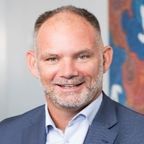
Andrew Reaper
Senior Executive Director, Justice Services, Department of Justice and Community Safety, Australia
Building the Culture of a New Halfway House in Singapore for Women by an All-Women Team (PID181)
Thematic Workshop Sessions
Building the Culture of a New Halfway House in Singapore for Women by an All-Women Team (PID181)
4pm – 4.30pm GMT+03:00, 28 October 2025 ‐ 30 mins
Thematic Workshop Sessions
Since 2022, PPIS has turned the complex task of building a residential space for women (a first for the organization), into setting an example of a healthy workplace culture that has allowed staff team members to grow even stronger in work arrangements and collaboration. The women team are driven by a common cause, demonstrate teamwork and continuously find ways to create positive impact with the women we work with.
This sharing will be a reflection of some of the practices that have grounded this culture.
Speakers

Saleha Rashidi
Centre Manager, Singapore Muslim Women’s Association (PPIS) - Rise Above Halfway House, Singapore
Creating Tools for Change: A Digital Handbook and Diagnostic Tool to Improve Prison Staff Wellbeing Across Europe (PID201)
Thematic Workshop Sessions
Creating Tools for Change: A Digital Handbook and Diagnostic Tool to Improve Prison Staff Wellbeing Across Europe (PID201)
4pm – 4.30pm GMT+03:00, 28 October 2025 ‐ 30 mins
Thematic Workshop Sessions
These tools aim to build a culture of awareness, prevention, and continuous development through training and leadership. They offer a practical response to the growing need for resilient and well-supported prison staff, whose wellbeing is essential for a safe, stable, and humane correctional environment. By combining shared European experience with evidence-based approaches, the tools are intended to support both daily practice and long-term strategy.
Speakers


Reducing Prison Violence Through Expanded Rehabilitation and Oversight (PID056)
Thematic Workshop Sessions
Reducing Prison Violence Through Expanded Rehabilitation and Oversight (PID056)
4pm – 4.30pm GMT+03:00, 28 October 2025 ‐ 30 mins
Thematic Workshop Sessions
Speakers

Dr. Ivan Zinger
Correctional Investigator, Canada's Office of the Correctional Investigator, Canada
Reducing Stigma Towards Incarcerated Populations: A Systematic Review of Intervention Studies (PID047)
Thematic Workshop Sessions
Reducing Stigma Towards Incarcerated Populations: A Systematic Review of Intervention Studies (PID047)
4pm – 4.30pm GMT+03:00, 28 October 2025 ‐ 30 mins
Thematic Workshop Sessions
Despite these promising results, no studies from low- or middle-income countries were identified, and few examined long-term behavioural change. This highlights a critical gap in evidence and underscores the need for more robust study designs with extended follow-up periods. The findings suggest that while anti-stigma interventions can shift knowledge and attitudes, their effect on behaviour remains limited. Policymakers are encouraged to incorporate myth-busting elements into anti-stigma initiatives and to ensure interventions are culturally and contextually tailored. Future research should prioritise standardised approaches and assess long-term effectiveness, particularly among underrepresented groups such as women, young people, and populations in low- and middle-income countries.
Speakers

"He Couldn't Call Me Dad Again": Ex-Offenders Experiences of Fathering During and After Incarceration in the UK (PID097)
Thematic Workshop Sessions
"He Couldn't Call Me Dad Again": Ex-Offenders Experiences of Fathering During and After Incarceration in the UK (PID097)
4pm – 4.30pm GMT+03:00, 28 October 2025 ‐ 30 mins
Thematic Workshop Sessions
Preliminary findings reveal that while many fathers received meaningful support within prison—including structured communication programme and mental health services—post-release realities were starkly different. Participants reported significant difficulties in re-establishing bonds with their children, compounded by limited access to support networks, employment barriers, and the persistent stigma surrounding their parental role. Notably, fatherhood in the post-release context emerged as largely invisible, echoing broader patterns of paternal marginalization within institutional settings.
This session argues for a reimagining of post-release support, advocating for targeted reintegration training, improved access to community-based parenting networks, and employment pathways that recognize the unique needs of returning fathers. By centring their voices, this research contributes to a deeper understanding of fatherhood after incarceration and calls for systemic change to better support familial reconnection and social reintegration.
Speakers


Architectural Strategies for Enhancing Staff Well-Being and Institutional Security in Correctional Settings (PID146)
Thematic Workshop Sessions
Architectural Strategies for Enhancing Staff Well-Being and Institutional Security in Correctional Settings (PID146)
4.30pm – 5pm GMT+03:00, 28 October 2025 ‐ 30 mins
Thematic Workshop Sessions
The presentation is grounded in extensive experience that has evolved into knowledge and insights drawn from a range of built and ongoing architectural projects, each with diverse contexts and user needs and requirements.
A central design parameter is the creation of a safe and resilient workplace for correctional staff. The presentation aims to illustrate how the quality of the work environment directly influences human behavior and well-being - an increasingly recognized success criteria in achieving effective rehabilitation outcomes.
Speakers


Jonas Hviid Mønster
Partner, Head Business and Process Development, Alex Poulsen Architects, Denmark
Smart on Justice: The Approach of the Dutch Probation Against Subversive Crime in The Netherlands (PID099)
Thematic Workshop Sessions
Smart on Justice: The Approach of the Dutch Probation Against Subversive Crime in The Netherlands (PID099)
4.30pm – 5pm GMT+03:00, 28 October 2025 ‐ 30 mins
Thematic Workshop Sessions
Speakers

Arjen Alting
Board Secretary, National Coordinator Undermining, The Dutch Probation Offices, Netherlands


Manon De Nooijer
Board Secretary District Noord-Holland, The Dutch Probation Office, Netherlands
Building Resilient Health Systems in Philippine Correctional Facilities: Integrating Disease Surveillance and National Policy for Comprehensive Detainee Healthcare (PID017)
Thematic Workshop Sessions
Building Resilient Health Systems in Philippine Correctional Facilities: Integrating Disease Surveillance and National Policy for Comprehensive Detainee Healthcare (PID017)
4.30pm – 5pm GMT+03:00, 28 October 2025 ‐ 30 mins
Thematic Workshop Sessions
Speakers

Dr. John Paul Borlongan
Medical Division Chief, Bureau of Jail Management and Penology, Philippines

Michelle Dulce Candelaria Matias RN, JD, MCDRM
JSINSP/ Attorney, Department of the Interior and Local Government / Bureau of Jail Management and Penology, Philippines
Pre-Deployment Corrections Training for Peace Operations – Development and Progress (PID324)
Thematic Workshop Sessions
Pre-Deployment Corrections Training for Peace Operations – Development and Progress (PID324)
4.30pm – 5pm GMT+03:00, 28 October 2025 ‐ 30 mins
Thematic Workshop Sessions
Speakers

Martin Gillå
Head of Office for International Affairs, Swedish Prison and Probation Service, Sweden
A Partnership Between Canadian Researchers and the Uganda Prisons Service: Lessons Learned From the Mbarara Prison Complex in Uganda and Empowerment Through Sustainable Research (PID125)
Thematic Workshop Sessions
A Partnership Between Canadian Researchers and the Uganda Prisons Service: Lessons Learned From the Mbarara Prison Complex in Uganda and Empowerment Through Sustainable Research (PID125)
4.30pm – 5pm GMT+03:00, 28 October 2025 ‐ 30 mins
Thematic Workshop Sessions
Speakers

Dr. Aidah Ajambo
Associate Consultant of Public Health, Uganda Prisons Service, Uganda

Professor Rosemary Ricciardelli
Professor and Research Chair: Safety, Security, and Wellness, Memorial University of Newfoundland, Canada
From Margins to Center: Addressing the Spatial Needs of Incarcerated Women in Austria (PID095)
Thematic Workshop Sessions
From Margins to Center: Addressing the Spatial Needs of Incarcerated Women in Austria (PID095)
4.30pm – 5pm GMT+03:00, 28 October 2025 ‐ 30 mins
Thematic Workshop Sessions
Women constitute only a small minority of the prison population in Europe - and in Austria - resulting in their marginalization within a system largely designed around male inmates. Preliminary findings from qualitative fieldwork in Austrian custodial facilities reveal persistent disparities in access to spatial and programmatic resources: female inmates are often offered fewer leisure, education, and work opportunities, with employment frequently limited to gender-stereotypical tasks.
Building on previous findings and recent empirical data, this contribution explores how the physical and organizational prison environment can either support or restrict women's agency. Central to the analysis are the availability, accessibility, and usability of spaces, as well as the dimensions of dignity, privacy, autonomy, and normality - factors considered essential to promoting rehabilitation and supporting self-determined futures.
Speakers

Wednesday 29 October
Host Opening Introductions
Plenary Session
Host Opening Introductions
9am – 9.15am GMT+03:00, 29 October 2025 ‐ 15 mins
Plenary Session
Moderated by Ezgi ÇetintürkSpeakers

Enis Yavuz YILDIRIM
Judge, General Director, General Directorate of Prison and Detention Houses, MoJ, Türkiye
Strengthening Staff Wellbeing in Prisons and Operational Processes in Crisis Situations (PID096)
Plenary Session
Strengthening Staff Wellbeing in Prisons and Operational Processes in Crisis Situations (PID096)
9.15am – 9.45am GMT+03:00, 29 October 2025 ‐ 30 mins
Plenary Session
The presentation will provide an in-depth look at how the CEKUT teams’ swift response ensured the safety of correctional facilities, the relocation of over 10,000 inmates, and the provision of vital services such as shelter, medical care, and psychosocial support. By focusing on the strategies implemented during the 2023 earthquakes, this session will highlight the importance of institutional resilience in disaster management. Attendees will gain insights into how integrated organizational structures, interagency cooperation, and specialized training contribute to the effectiveness of correctional systems in crisis situations. The CEKUT model offers valuable lessons for disaster preparedness and resilience that can be applied to correctional facilities worldwide, making this session crucial for professionals in both the disaster management and penal system fields.
Speakers

Enis Yavuz YILDIRIM
Judge, General Director, General Directorate of Prison and Detention Houses, MoJ, Türkiye
Managing Human Resources Strategies in Türkiye’s Penitentiary System: A Comprehensive Overview (PID088)
Plenary Session
Managing Human Resources Strategies in Türkiye’s Penitentiary System: A Comprehensive Overview (PID088)
9.45am – 10.30am GMT+03:00, 29 October 2025 ‐ 45 mins
Plenary Session
Key HR strategies in Türkiye’s criminal justice system include:
Recruitment: The recruitment process is rigorous, involving public exams and background checks to ensure fairness and merit. Emphasis is placed on diversity, making the system more inclusive and representative. However, attracting qualified professionals to rural or underserved areas remains a challenge.
Training & Development: Continuous professional development is prioritized, with tailored training programs in criminal law, human rights, and emerging fields like cybercrime. Modern technology, including e-learning, is utilized to make training more accessible.
Performance Management: Employees are regularly assessed based on their performance, using both qualitative and quantitative measures. This system helps identify areas for improvement while maintaining high standards of accountability and efficiency.
Retention: Retaining qualified professionals is supported by offering competitive salaries, job stability, and career growth opportunities. Additionally, wellness initiatives and stress management programs help combat burnout and improve job satisfaction.
These strategies are designed to ensure that Türkiye’s criminal justice system remains effective, ethical, and adaptive to the evolving needs of society. The focus on employee well-being and professional growth is essential for long-term success and a fair judicial system.
Speakers

Coffee Break and Exhibition
Break and Exhibition
Coffee Break and Exhibition
10.30am – 11am GMT+03:00, 29 October 2025 ‐ 30 mins
Break and Exhibition
Behind Bars, Beyond Exhaustion: Rethinking Staff Welfare in Correctional Systems (PID138)
Plenary Session
Behind Bars, Beyond Exhaustion: Rethinking Staff Welfare in Correctional Systems (PID138)
11am – 11.30am GMT+03:00, 29 October 2025 ‐ 30 mins
Plenary Session
This presentation highlights the need for a systemic shift from reactive to proactive mental health strategies in correctional settings. Instead of addressing burnout only after it arises, institutions should focus on preventative approaches that promote resilience, provide structured opportunities for rest and psychological recovery, and ensure equitable workload distribution. Moreover, the development of emotional intelligence among staff is essential for improving interpersonal relationships, reducing conflict, and fostering empathetic communication. These soft skills can substantially enhance workplace cohesion and staff morale.
Equally critical is the establishment of peer support networks and mentorship programs to counter the isolating nature of correctional work. Such initiatives help cultivate a culture of solidarity, emotional validation, and collective resilience. Ultimately, a holistic and human-centered institutional approach that addresses the emotional and organizational needs of correctional staff can lead to improved well-being, greater institutional effectiveness, and ethical sustainability. Future research and policy should continue to explore comprehensive models for fostering psychologically healthy correctional environments.
Speakers
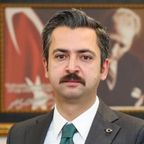
Fatih Serkan Günaydın
Judge, Head of Personnel Department, Ministry of Justice, General Directorate of Prisons and Detention Houses, Türkiye
Technical Assistance Provided by the Council of Europe in the Area of Prisons, with Focus on Healthcare Provision and Staff Well-Being (PID229)
Plenary Session
Technical Assistance Provided by the Council of Europe in the Area of Prisons, with Focus on Healthcare Provision and Staff Well-Being (PID229)
11.30am – 12pm GMT+03:00, 29 October 2025 ‐ 30 mins
Plenary Session
Participants will gain insight into CPDL’s targeted support to improve prison healthcare systems, including mental health services, through needs assessments, legal and policy advisory, peer exchanges, and expert-led training. The session will also explore CPDL’s growing focus on staff well-being, addressing the emotional and psychological toll of working with high-risk inmate populations. This includes strategies for institutional resilience, developing internal support systems, and fostering partnerships with external mental health services.
Learn how technical assistance is turning human rights principles into daily practice behind prison walls. This presentation is ideal for professionals working in justice reform, prison management, healthcare in detention, or human rights monitoring, offering better understanding on devising tailored technical assistance programmes to ensuring sustainable impact.
Speakers

Tanja Rakusic-Hadzic
Head of the Cooperation in Police and Deprivation of Liberty Division, Council of Europe, France
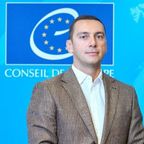
Donche Boshkovski
Head of Unit, Cooperation in Police and Deprivation of Liberty Division, Council of Europe, France
Lunch and Exhibition
Lunch and Exhibition
Lunch and Exhibition
12pm – 1pm GMT+03:00, 29 October 2025 ‐ 1 hour
Lunch and Exhibition
Smart, Sustainable, and Supportive: Future-Ready Systems in Criminal Justice (PID156)
Thematic Workshop Sessions
Smart, Sustainable, and Supportive: Future-Ready Systems in Criminal Justice (PID156)
1pm – 1.30pm GMT+03:00, 29 October 2025 ‐ 30 mins
Thematic Workshop Sessions
Speakers

Banu DEMİRCİ ALTAY
Judge, Deputy General Director, General Directorate of Prisons and Detention Houses, Türkiye
Confederation of European Probation: Advancing Staff Wellbeing and Professional Development (PID232)
Thematic Workshop Sessions
Confederation of European Probation: Advancing Staff Wellbeing and Professional Development (PID232)
1pm – 1.30pm GMT+03:00, 29 October 2025 ‐ 30 mins
Thematic Workshop Sessions
Through a range of Expert Groups CEP provides a platform for knowledge exchange and innovation. Expert Groups are focused on topics that are vital to the CEP members. These expert groups address areas such as mental health, electronic monitoring, technology in probation, gender-based violence, communication, caseload & workload, radicalisation, and research. Also, in collaboration with EuroPris, CEP addresses the needs of foreign nationals in prison and probation. Additionally, there are two expert networks under the scope of CEP: one on EU Framework Decisions and another on education and training in probation.
The work and outcomes of these expert groups contribute significantly to supporting probation staff and the development of probation services across Europe. This presentation will showcase the most interesting new outputs emerging from these efforts with a focus on their impact on staff wellbeing and service development.
Speakers
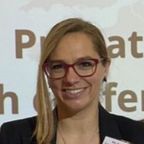
Jana Spero Kanenjarin
General Secretary, Confederation of European Probation, Netherlands
Establishing a Direct Complaint Mechanism to Strengthen Prisoners’ Rights in Türkiye (PID090)
Thematic Workshop Sessions
Establishing a Direct Complaint Mechanism to Strengthen Prisoners’ Rights in Türkiye (PID090)
1pm – 1.30pm GMT+03:00, 29 October 2025 ‐ 30 mins
Thematic Workshop Sessions
Speakers

Human Dignity-Oriented Security Approach: Standardization and Rights-Based Practices in Prisons (PID153)
Thematic Workshop Sessions
Human Dignity-Oriented Security Approach: Standardization and Rights-Based Practices in Prisons (PID153)
1pm – 1.30pm GMT+03:00, 29 October 2025 ‐ 30 mins
Thematic Workshop Sessions
Rooted in a rights-based philosophy, the newly developed "Security Standards Directive" introduces a comprehensive, nationwide framework designed to align prison security practices with international human rights norms. By covering critical areas such as body searches, surveillance, emergency procedures, and visitor control, this approach prioritizes both safety and humane treatment.
Participants will gain insight into how Türkiye is transforming its correctional security systems—not only by introducing technical protocols, but by embedding values such as transparency, accountability, and respect for privacy into daily operations. The presentation will share how institutions are operationalizing these principles through staff training, monitoring systems, and practical safeguards that reduce the risk of arbitrary or disproportionate practices.
This session will be especially relevant to practitioners, policymakers, and human rights advocates seeking to build correctional environments that are both secure and respectful. Türkiye’s model offers a replicable pathway for jurisdictions aiming to uphold safety while meeting international standards of dignity and justice.
Join us to discover how rethinking security—through the lens of human rights—can lead to more resilient and legitimate correctional systems.
Speakers

Mehmet Yılmaz
Judge, Deputy Director General, General Directorate of Prison and Detention Houses, MoJ, Türkiye
"Being in Constant Communication is Wonderful": A Case Study on Integration of Smart Technologies Into Prisons in Türkiye (PID189)
Thematic Workshop Sessions
"Being in Constant Communication is Wonderful": A Case Study on Integration of Smart Technologies Into Prisons in Türkiye (PID189)
1pm – 1.30pm GMT+03:00, 29 October 2025 ‐ 30 mins
Thematic Workshop Sessions
Backed by field data collected in 2022 and 2023 - including surveys with convicts, interviews with correctional staff and developers, and direct onsite observations - the study reveals the real-world outcomes of digitalization behind bars. Key findings demonstrate improvements in inmate communication, rehabilitation opportunities, and administrative efficiency.
By combining human rights considerations with operational goals, the project offers valuable insights for correctional institutions worldwide exploring similar technological transitions. Findings from the study provide a deeper understanding of how the use of digital technologies can improve the effectiveness of the correctional system for offenders, their families and staff by addressing many challenges simultaneously.
Speakers


Sevcan Ozturk-Kilic
Research and Teaching Assistant, Istanbul Technical University, Türkiye
Prison Staff as Key Actors in Implementing International Prisoner Rights Standards: A Study from the Sincan Prison Campus (PID155)
Thematic Workshop Sessions
Prison Staff as Key Actors in Implementing International Prisoner Rights Standards: A Study from the Sincan Prison Campus (PID155)
1pm – 1.30pm GMT+03:00, 29 October 2025 ‐ 30 mins
Thematic Workshop Sessions
Speakers
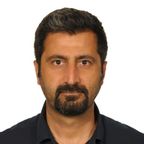
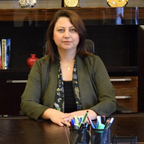
Sponsor Presentation - Türksat: Biometric Signature Method for Tracking Systems (PID317)
Thematic Workshop Sessions
Sponsor Presentation - Türksat: Biometric Signature Method for Tracking Systems (PID317)
1pm – 1.45pm GMT+03:00, 29 October 2025 ‐ 45 mins
Thematic Workshop Sessions
Speakers

Crisis of the Turkish Criminal Penal System and Solution Suggestions (PID152)
Thematic Workshop Sessions
Crisis of the Turkish Criminal Penal System and Solution Suggestions (PID152)
1.30pm – 2pm GMT+03:00, 29 October 2025 ‐ 30 mins
Thematic Workshop Sessions
Although probation has greatly eased the burden of the execution system, it has not solved the problem of overcrowding in prisons. Since 2005, the prison population in Türkiye has steadily increased, exceeding 400,000.
Speakers

Assoc. Prof. Hakan A. YAVUZ
Lawyer, Lecturer, Ankara Yildirim Beyazit University, Türkiye
Collaboration Between Penal Institutions and Probation Services and Post-Release Reintegration: The Case of Türkiye (PID157)
Thematic Workshop Sessions
Collaboration Between Penal Institutions and Probation Services and Post-Release Reintegration: The Case of Türkiye (PID157)
1.30pm – 2pm GMT+03:00, 29 October 2025 ‐ 30 mins
Thematic Workshop Sessions
A central focus will be the role of probation system of Türkiye in ensuring continuity of care and rehabilitation during and after incarceration. The presentation will share good practices related to community service, multi-agency partnerships, vocational support, and entrepreneurial initiatives aimed at reducing recidivism. It will also address the challenges of reintegration, including social stigma, institutional coordination, and the need for sustainable models.
Drawing on empirical examples and national strategies, the session argues that reintegration is not solely an individual transformation process but also a public good that benefits broader societal well-being. The presentation will conclude with actionable recommendations for enhancing inter-agency collaboration and support systems in the probation context.
Speakers
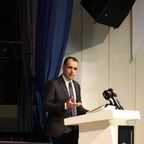
Dr. Hüseyin ŞIK
Head of Probation Department, Ministry of Justice - General Directorate of Prisons and Detention Houses, Türkiye
Compatibility of the Legal Infrastructure of the Turkish Penal System with International Human Rights Instruments (PID093)
Thematic Workshop Sessions
Compatibility of the Legal Infrastructure of the Turkish Penal System with International Human Rights Instruments (PID093)
1.30pm – 2pm GMT+03:00, 29 October 2025 ‐ 30 mins
Thematic Workshop Sessions
Speakers
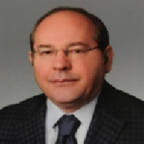
Smart, Fair and Transparent: Accountability and Innovation in Modern Corrections (PID092)
Thematic Workshop Sessions
Smart, Fair and Transparent: Accountability and Innovation in Modern Corrections (PID092)
1.30pm – 2pm GMT+03:00, 29 October 2025 ‐ 30 mins
Thematic Workshop Sessions
He will argue that inspections should go beyond ensuring legal compliance and should also aim to improve institutional efficiency, resource management, and the capacity to provide humane and rehabilitative services. A progressive correctional approach should combine fairness with innovation, placing the individual at the core of its mission. The presentation will also explore strategies to promote transparency and public trust, while reinforcing the role of oversight bodies in safeguarding the rights and dignity of inmates.
Speakers
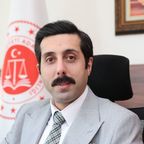
Artificial Intelligence in Assessing Recidivism Risk Examined Under Criminal Procedure Law and the Child's Best Interest Principle, Focusing on Legal, Ethical, and Child-Centered Implications (PID216)
Thematic Workshop Sessions
Artificial Intelligence in Assessing Recidivism Risk Examined Under Criminal Procedure Law and the Child's Best Interest Principle, Focusing on Legal, Ethical, and Child-Centered Implications (PID216)
1.30pm – 2pm GMT+03:00, 29 October 2025 ‐ 30 mins
Thematic Workshop Sessions
Speakers

Evaluation of the Psychological Resilience of Correctional Staff Against Psychological Harassment (Mobbing) (PID075)
Thematic Workshop Sessions
Evaluation of the Psychological Resilience of Correctional Staff Against Psychological Harassment (Mobbing) (PID075)
1.30pm – 2pm GMT+03:00, 29 October 2025 ‐ 30 mins
Thematic Workshop Sessions
Speakers

Sponsor Presentation - Securitas: From Reactive to Proactive Safety in Corrections: Human-Centred AI Video Analytics (PID318)
Thematic Workshop Sessions
Sponsor Presentation - Securitas: From Reactive to Proactive Safety in Corrections: Human-Centred AI Video Analytics (PID318)
1.45pm – 2.30pm GMT+03:00, 29 October 2025 ‐ 45 mins
Thematic Workshop Sessions
In correctional facilities, the goal is not only to record incidents; it is to detect risks proactively, with time left for intervention, while safeguarding the wellbeing of staff and residents. In this session, we will examine how AI-enabled video analytics learns the normal flow and flags meaningful deviations: aggression and fight detection, falls, people counting and unusual increases in people/vehicle counts in specific areas, presence in prohibited/sensitive zones, perimeter breaches, and intrusions—all detected in real time and surfaced on the operator’s screen. We will also show how rules that reduce false alarms are layered by risk profile and shift conditions, and how this lowers alarm fatigue and makes it easier for teams to focus on de-escalation and care-oriented response, using practical examples.
Moderated by Steven van de Steene, Board Member, ICPA, France
Speakers

The Role of Digital Technologies in Staff Well-being: The UYAP System (PID219)
Thematic Workshop Sessions
The Role of Digital Technologies in Staff Well-being: The UYAP System (PID219)
2pm – 2.30pm GMT+03:00, 29 October 2025 ‐ 30 mins
Thematic Workshop Sessions
By reducing bureaucratic overload, enhancing inter-agency coordination, and providing secure access to judicial files, UYAP empowers staff to work smarter - not harder. The system has enabled flexible work arrangements, increased transparency, and simplified documentation, all of which play a critical role in minimizing stress and burnout. Additionally, UYAP's built-in training modules and helpdesk support foster confidence and digital literacy, especially among newly recruited or technology-shy staff.
Attendees will gain practical insights into how a large-scale digital platform like UYAP can be leveraged to create a healthier, more sustainable workplace environment in the justice sector. Real-world examples will demonstrate the link between digital transformation and human-centered outcomes, offering valuable lessons for jurisdictions seeking to balance innovation with staff support.
Speakers

Mehmet POSTGÖREN
Branch Manager, Directorate General For Information Technologies, Ministry of Justice, Türkiye
Social Adaptation and Rehabilitation Measures in Probation Activities of Azerbaijan (PID230)
Thematic Workshop Sessions
Social Adaptation and Rehabilitation Measures in Probation Activities of Azerbaijan (PID230)
2pm – 2.30pm GMT+03:00, 29 October 2025 ‐ 30 mins
Thematic Workshop Sessions
The presentation emphasizes the promotion of volunteer involvement and the necessity of developing and implementing effective methods to prevent reoffending. One of the specially highlighted areas is the introduction of restorative justice - particularly mediation mechanisms between offenders and victims - and the implementation of pilot projects in this field in Azerbaijan.
Additionally, the expansion of non-custodial alternative sanctions and the revision of these measures within the framework of national legislation and international standards are considered essential. The tailored application of electronic monitoring systems and the enhancement of the effectiveness of rehabilitation measures in this context are also among the key issues addressed.
Speakers

Vugar Aghayev
Head of Probation Service, Probation Service, Ministry of Justice of Azerbaijan, Azerbaijan
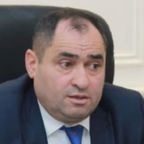
Dr. Sayyad Macidov
Head of Social Adaptation and Rehabilitation Department, Probation Service, Ministry of Justice of Azerbaijan, Azerbaijan
Legal Reforms for the Protection and Promotion of Human Rights in Türkiye (PID228)
Thematic Workshop Sessions
Legal Reforms for the Protection and Promotion of Human Rights in Türkiye (PID228)
2pm – 2.30pm GMT+03:00, 29 October 2025 ‐ 30 mins
Thematic Workshop Sessions
Participants will have the opportunity to learn about the main objectives and implementation outcomes of the Human Rights Action Plan launched in 2021, and to gain a deeper understanding of the roles, mandates, and practical impact of national human rights institutions. The presentation will also include concrete examples of legislative changes adopted in line with the judgments of the European Court of Human Rights.
In addition, the presentation will highlight practical initiatives such as training activities, publications, and awareness-raising campaigns aimed at promoting human rights awareness.
Participants are provided with an up-to-date, technical, and comprehensive perspective on Türkiye’s reform process in the field of human rights.
Speakers

Selim Doğanay
Judge, Deputy Head of Human Rights Department, Human Rights Department, Ministry of Justice, Türkiye
Promotion of the Niğde Probation Directorate's Entrepreneurship Project For Offender Rehabilitation and Reintegration (PID225)
Thematic Workshop Sessions
Promotion of the Niğde Probation Directorate's Entrepreneurship Project For Offender Rehabilitation and Reintegration (PID225)
2pm – 2.30pm GMT+03:00, 29 October 2025 ‐ 30 mins
Thematic Workshop Sessions
In addition to individual rehabilitation, these projects contribute to the labour market and aim to improve the overall welfare of society. As part of our successful practice, the directorate has supported initiatives in areas such as advertising signage, roofing systems, hairdressing, tailoring, cattle and sheep farming, as well as strawberry and salep cultivation. Furthermore, partnerships with public institutions through formal protocols play a vital role in sustaining and expanding these efforts.
Speakers
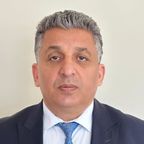
Training of Refugee Offenders by Virtual Reality (TRAIVR) (PID218)
Thematic Workshop Sessions
Training of Refugee Offenders by Virtual Reality (TRAIVR) (PID218)
2pm – 2.30pm GMT+03:00, 29 October 2025 ‐ 30 mins
Thematic Workshop Sessions
Developed through an international partnership - led by Başkent University with support from Ankara Probation Directorate, Germany, Portugal, and Romania - TRAIVR turns probation into a transformative learning experience. Picture a virtual café, a government office, a park - familiar places where users face real-life challenges and learn to overcome them with confidence.
Join us to explore how gamified VR scenarios are helping bridge cultural gaps, enhance social integration, and offer new hope to those often overlooked by traditional systems. Whether you work in justice, education, mental health, or tech - this is where innovation meets impact.
Let’s talk about the future of rehabilitation - and why it might just be virtual.
Speakers
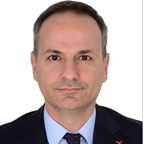
Workplace Culture in Prisons: Building Trust, Fairness, and Peer Support (PID166)
Thematic Workshop Sessions
Workplace Culture in Prisons: Building Trust, Fairness, and Peer Support (PID166)
2pm – 2.30pm GMT+03:00, 29 October 2025 ‐ 30 mins
Thematic Workshop Sessions
To boost motivation and reinforce institutional belonging, General Directorate organizes a variety of staff-centered activities.These events have been implemented across many prisons throughout the country. For instance, a Mother’s Day celebration for female staff at the Kayseri Women's Closed prison basic mountaineering and nature activities held at the Kahramanmaraş Personnel Training Center,concerts performed by a staff music group at the Ankara Training Center are all aimed at creating a productive and high-motivation work environment.
Speakers

Coffee Break and Exhibition
Break and Exhibition
Coffee Break and Exhibition
2.30pm – 3pm GMT+03:00, 29 October 2025 ‐ 30 mins
Break and Exhibition
Work and Hope Again: The Future of Enforcement in Prisons, Production, Social Transformation and Reconstruction of Life (PID221)
Thematic Workshop Sessions
Work and Hope Again: The Future of Enforcement in Prisons, Production, Social Transformation and Reconstruction of Life (PID221)
3pm – 3.30pm GMT+03:00, 29 October 2025 ‐ 30 mins
Thematic Workshop Sessions
When this process is supported by vocational training and combined with fundamental human needs such as hope, personal development, and social integration, prisons transform into spaces of change. With the knowledge and skills gained within the prison environment, prisoners can return to life after release with stronger steps - not just with a job, but with a renewed identity. Prison workshops go beyond economic profit; they are structures that foster discipline, respect, and social responsibility.
In this presentation, I aim to share the individual and societal impacts of production-oriented enforcement models, enriched with field examples, human stories, and implementation results. My goal is to offer participants an experience that is both inspiring and thought-provoking.
Speakers
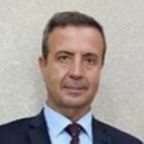
Digital Healing: Transforming Prison Healthcare Through e-Doctor Solutions (PID139)
Thematic Workshop Sessions
Digital Healing: Transforming Prison Healthcare Through e-Doctor Solutions (PID139)
3pm – 3.30pm GMT+03:00, 29 October 2025 ‐ 30 mins
Thematic Workshop Sessions
In a world where digital transformation is reshaping public services, Türkiye’s e-Doctor initiative offers a compelling case study of how technology can enhance inmate well-being, reduce operational strain, and strengthen institutional safety. Currently implemented in 176 prisons nationwide, the system allows remote medical consultations, digital prescriptions, triage support, and health record integration - all while maintaining strict security standards.
Speakers

Berker KÜÇÜKÇETİN
Chief of R&D Project Office, Administrative Officer, General Directorate of Prison and Detention Houses, Türkiye
How can Data-Informed Systems Contribute to the Development of Psychosocial Services? (PID069)
Thematic Workshop Sessions
How can Data-Informed Systems Contribute to the Development of Psychosocial Services? (PID069)
3pm – 3.30pm GMT+03:00, 29 October 2025 ‐ 30 mins
Thematic Workshop Sessions
This presentation will introduce the structure and outcomes of the ARDEF system, which has been developed and implemented in Türkiye. In addition, the presentation will open a discussion on the critical considerations and potential challenges associated with the use of such systems.
Speakers

A Multidimensional View of Mothers' Sensitive Care Approach in Penitentiary Institutions (PID217)
Thematic Workshop Sessions
A Multidimensional View of Mothers' Sensitive Care Approach in Penitentiary Institutions (PID217)
3pm – 3.30pm GMT+03:00, 29 October 2025 ‐ 30 mins
Thematic Workshop Sessions
We will take participants on a journey through the early developmental needs of children and the central role of mothers in supporting these needs. But this journey also passes through the lived realities of incarceration: institutional restrictions, emotional strain, lack of resources, and disrupted attachment. Through this lens, we will consider not only the challenges but also the possibilities: How can prison systems better support mothers to provide responsive, nurturing care? What programs exist - and what models are emerging - that create space for real human connection between mother and child, even behind bars? With real-world examples, research insights, and policy implications, this presentation invites us to rethink caregiving as a core part of correctional justice - not a luxury, but a necessity.
The presentation will also discuss the institutional model developed within the scope of the “Annemleyim Project”, which is one of the important steps taken in this field in Turkiye and carried out with the support of the European Union. This model aims to provide a sensitive and development-supportive environment for children staying with their mothers in penal institutions.
Speakers

Two Paths, One Goal? The Evolving Relationship Between Restorative Justice and Probation (PID089)
Thematic Workshop Sessions
Two Paths, One Goal? The Evolving Relationship Between Restorative Justice and Probation (PID089)
3pm – 3.45pm GMT+03:00, 29 October 2025 ‐ 45 mins
Thematic Workshop Sessions
Speakers

Dr. Rahime Erbaş
Associate Professor of Law at Istanbul Law Faculty, Istanbul University, Türkiye
The Place of Staff-Prisoner Relationship in the Visits of National Preventive Mechanisms: The Case Study of Türkiye (PID148)
Thematic Workshop Sessions
The Place of Staff-Prisoner Relationship in the Visits of National Preventive Mechanisms: The Case Study of Türkiye (PID148)
3pm – 3.45pm GMT+03:00, 29 October 2025 ‐ 45 mins
Thematic Workshop Sessions
This study aims to find answers to above three questions. In this context, this study, firstly, the roles of OPCAT and NPMs established within the framework of OPCAT will be discussed. One of the powers and mandates of NPMs is to monitor the staff-prisoner relationship in prisons. After compiling the topics that can be monitored within this framework, the example of Türkiye will be discussed. Statistical data regarding the penal institution visits and visiting reports of the NPM of Türkiye will be shared. Then, the topics affecting the staff-prisoner relationship in these reports will be tried to be shared through the reports. In this context, four topics in particular will be detailed with the findings in different reports. These are; a. the importance of a sufficient number of expert personnel b. Compliance with legislation in search c. Training of prison staff and d. Negative and Positive Obligations of the State.
Speakers
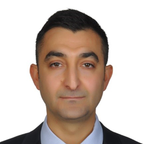
Dr. Ertuğrul Yazar
Expert on Human Rights and Equality, Human Rights and Equality Institution of Türkiye, Türkiye
ICPA Volunteer Network (PID322)
Thematic Workshop Sessions
ICPA Volunteer Network (PID322)
3pm – 3.45pm GMT+03:00, 29 October 2025 ‐ 45 mins
Thematic Workshop Sessions
Speakers

Luke Leong
Superintendent, Institution Tanah Merah, Singapore Prison Service, Singapore
Organic Farming as a Strategy for Inmate Rehabilitation (PID224)
Thematic Workshop Sessions
Organic Farming as a Strategy for Inmate Rehabilitation (PID224)
3.30pm – 4pm GMT+03:00, 29 October 2025 ‐ 30 mins
Thematic Workshop Sessions
The activities of the project “Cooperation for the Improvement of Sustainable and Organic Social Farming Practices in Prison”, coordinated by Germany with partners Turkey, Portugal, and Italy, are presented in this paper. Turkey participates in the project through its collaboration with the Workhouse Directorate of Detention Houses for Prisons and Criminal Institutions. The project focuses on developing training and practical education in sustainable farming for educators, staff, and inmates to promote skills, entrepreneurship, and eco-friendly prison farming practices.
Speakers



Silent Transformation Through Art: An Expressive Therapy Experience with Forensic Psychiatric Inmates in Correctional Institutions (PID226)
Thematic Workshop Sessions
Silent Transformation Through Art: An Expressive Therapy Experience with Forensic Psychiatric Inmates in Correctional Institutions (PID226)
3.30pm – 4pm GMT+03:00, 29 October 2025 ‐ 30 mins
Thematic Workshop Sessions
As a result of the expressive art therapy sessions, various indicators of improvement were observed among inmate participants with psychiatric disorders at the group level. Most participants demonstrated increased emotional awareness, enhanced emotional expression skills, improved empathy in social interactions, and a strengthened sense of belonging within the group.
Overall, expressive art therapy practices in correctional settings offer a functional alternative or complement to traditional verbal therapies, supporting both psychiatric and social well-being.
Speakers


Accessible Healthcare Services and Reintegration through Rehabilitation Processes within the Framework of Human Rights in Penal Institutions (PID164)
Thematic Workshop Sessions
Accessible Healthcare Services and Reintegration through Rehabilitation Processes within the Framework of Human Rights in Penal Institutions (PID164)
3.30pm – 4pm GMT+03:00, 29 October 2025 ‐ 30 mins
Thematic Workshop Sessions
The presentation will cover key topics such as internal and external healthcare services, efforts within the scope of combating addiction, and health programs focused on physical and mental rehabilitation.
In addition, examples will be provided regarding practices such as family medicine services, dental care, hospital examinations and treatments, mental health services, and addiction treatment and rehabilitation, within the framework of the collaboration with the Ministry of Health.
The aim is to demonstrate that penal institutions can go beyond merely implementing rehabilitation policies and instead provide a holistic, rights-based service model grounded in the right to health and ensuring dignified living conditions for prisoners and detainees.
Speakers
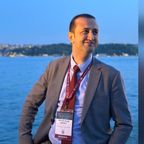
Dr. Mustafa Burak AÇOĞLU
Head of Health Departmant, Doctor, General Directorate of Prison and Detention Houses, MoJ, Türkiye
Children in the Shadow of Justice: Trauma, Resilience and Restorative Approaches (PID223)
Thematic Workshop Sessions
Children in the Shadow of Justice: Trauma, Resilience and Restorative Approaches (PID223)
3.30pm – 4pm GMT+03:00, 29 October 2025 ‐ 30 mins
Thematic Workshop Sessions
Speakers

Dr Berna AYGÜN
Child and Adolescent Psychiatry, Assistant Professor, Halic University Medical Faculty, Türkiye
Rehabilitation Homes (Halfway House) in The Penal System (PID182)
Thematic Workshop Sessions
Rehabilitation Homes (Halfway House) in The Penal System (PID182)
3.45pm – 4.30pm GMT+03:00, 29 October 2025 ‐ 45 mins
Thematic Workshop Sessions
After being released from the penal institution for a short or long period, an individual needs a place to stay, a job to work and some time to establish social relationships in order to adapt to social life, in other words, to continue life where he left off. During the adaptation period to life, a temporary place to stay should be provided for the convict who is released from the penal institution, and the person should be prepared for social life by providing psychosocial support in this place. Operating under different names in different parts of the world, “rehabilitation houses” (halfway house) have been operating in the United States for more than 100 years. It has been determined that the application of halfway houses has increased with the increasing interest in community-based rehabilitation programs since the 1950s.
Speakers
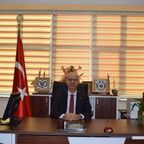
Dr. Vehbi Kadri KAMER
Public Prosecutor at the Izmir Regional Court of Justice, Republic of Türkiye Ministry of Justice, Türkiye
The Importance of Motivational Personnel Training in the Healthy Functioning of the Penal Enforcement System (PID149)
Thematic Workshop Sessions
The Importance of Motivational Personnel Training in the Healthy Functioning of the Penal Enforcement System (PID149)
3.45pm – 4.30pm GMT+03:00, 29 October 2025 ‐ 45 mins
Thematic Workshop Sessions
In Türkiye, the training of the personnel of the penal system is carried out within a planned and continuous institutionalized structure. These trainings, which are shaped according to the needs in the field and strengthened with content that prioritizes individual development, do not only provide legal knowledge; they also undertake critical functions such as preventing professional burnout, reinforcing the sense of belonging and keeping motivation alive. Every element, from sociocultural activities to technological infrastructure, is an integral part of this process. While the trainings, which are shaped in line with the demands from the field, are developed and updated with feedback; the technological equipment and social activities of the training centres make the learning process more effective and efficient.
As a result; highly motivated personnel who are strengthened by education are not only the implementers of the penal system, but also the guarantors of justice, human rights and social security. This motivation supported by education is the most powerful dynamic that carries the penal system forward.
Speakers
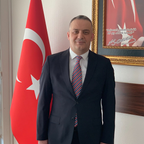
Gökhan Köseoğlu
Judge, Head of Personnel Training Department, General Directorate of Prison and Detention Houses Türkiye, Türkiye
Juvenile Reformarory House’s Success in International Cooking Competition (PID227)
Thematic Workshop Sessions
Juvenile Reformarory House’s Success in International Cooking Competition (PID227)
4pm – 4.30pm GMT+03:00, 29 October 2025 ‐ 30 mins
Thematic Workshop Sessions
With approval, they entered the Artisan Bread category with 35 types of bread. On May 24, they won 4 gold, 9 silver, and 1 bronze medals. Awards were presented in a ceremony at the facility. This success increased their motivation and engagement in vocational training, contributing positively to their rehabilitation and future integration into society.
Speakers
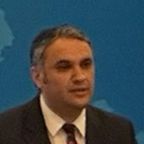
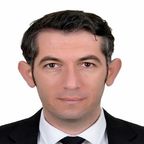
Policies and Practices for the Rehabilitation of Special Needs Offenders in Penal Institutions (PID169)
Thematic Workshop Sessions
Policies and Practices for the Rehabilitation of Special Needs Offenders in Penal Institutions (PID169)
4pm – 4.30pm GMT+03:00, 29 October 2025 ‐ 30 mins
Thematic Workshop Sessions
Speakers

A Prison Model Focused on Treatment, Guidance, and Rehabilitation for Individuals with Substance Use Disorders (PID154)
Thematic Workshop Sessions
A Prison Model Focused on Treatment, Guidance, and Rehabilitation for Individuals with Substance Use Disorders (PID154)
4pm – 4.30pm GMT+03:00, 29 October 2025 ‐ 30 mins
Thematic Workshop Sessions
Speakers

Merve Çakıroğlu
Branch Manager, General Directorate of Prisons and Detention Houses, Türkiye
Diversion in the Field of Juvenile Justice (PID220)
Thematic Workshop Sessions
Diversion in the Field of Juvenile Justice (PID220)
4pm – 4.30pm GMT+03:00, 29 October 2025 ‐ 30 mins
Thematic Workshop Sessions
In this context, traditional punishment methods often fail to take into account children's physical and psychological development, as well as their emotional and educational needs. This situation further highlights the need to encourage children to focus on rehabilitation and restorative justice goals.
In fact, UNICEF's Child Protection Strategy (2021-2030) places the prevention of crime and violence against children at the center of its approach. The strategy includes access to justice as one of its thematic priorities, including the support of restorative justice approaches and the dissemination of diversion plans. In this context, the dissemination and prioritization of diversion practices, the standard implementation of restorative justice approaches, and the integration of mental health and psychosocial support in juvenile justice systems are important issues.
Speakers

Emre Özcan
Judge, Head of the Child Services Department, Ministry of Justice (MoJ), Türkiye
A Taste of Turkish Culture
Taste of Turkish Culture
A Taste of Turkish Culture
4.30pm – 6pm GMT+03:00, 29 October 2025 ‐ 1 hour 30 mins
Taste of Turkish Culture
The art of assembling small pieces of stone and glass to create large and meaningful images. Widely used especially in mosques and palaces, during the Ancient and Ottoman periods.
-
Ottoman Macun - a healing and delicious sweet from old times. Ottoman Macun is a colourful, spice-enriched confection made with natural sugar, leaving a sweet nostalgia on the palate.
-
Sherbet- refreshing drinks made from natural fruit, spice, and herbal blends. These traditional sherbets, originating from the Ottoman palaces, will be offered as tastings in our workshop.
-
Mırra - a special type of traditional coffee culture, Mırra is a very dark roasted, strong coffee. Usually served in small cups, it is known for its intense aroma and is an essential part of hospitality in Southeastern Anatolia and surrounding regions.

Ebru and Pottery

Çini/Calligraphy/Mosaic

Relief/Kilim Weaving

Traditional Flavours
Special Event Dinner and ICPA Correctional Excellence Awards Ceremony
Special Event Dinner and ICPA Correctional Excellence Awards Ceremony
Special Event Dinner and ICPA Correctional Excellence Awards Ceremony
8pm – 11pm GMT+03:00, 29 October 2025 ‐ 3 hours
Special Event Dinner and ICPA Correctional Excellence Awards Ceremony

Thursday 30 October
Beyond Survival: Prison Conditions Matter for Wellbeing (PID305)
Plenary Session
Beyond Survival: Prison Conditions Matter for Wellbeing (PID305)
9am – 9.45am GMT+03:00, 30 October 2025 ‐ 45 mins
Plenary Session
Speakers

Preventing Burnout in Probation: Towards a Resilient Workforce Through Organisational Strategies – Findings From a European Survey (PID235)
Plenary Session
Preventing Burnout in Probation: Towards a Resilient Workforce Through Organisational Strategies – Findings From a European Survey (PID235)
9.45am – 10.30am GMT+03:00, 30 October 2025 ‐ 45 mins
Plenary Session
The presentation highlights promising practices such as structured staff wellbeing programs, confidential feedback mechanisms, horizontal and vertical communication initiatives, and access to mental health services. However, the data also reveal significant variability in policy implementation, the absence of systematic assessment tools in many jurisdictions, and limited post-trauma support for staff. By triangulating survey responses with the existing empirical literature on occupational health in criminal justice settings, we identify key organisational enablers of resilience and formulate evidence-based recommendations for probation leadership and policymakers.
The findings support a shift from individual-level coping interventions toward holistic, organisational responses that embed staff wellbeing within the culture and governance of probation services. This evidence-informed agenda offers a shared platform for dialogue, innovation, and cross-jurisdictional learning across ICPA member organisations.
Speakers

Ioan Durnescu
Professor, University of Bucharest's Faculty of Sociology and Social Work, Romania
Coffee Break and Exhibition
Break and Exhibition
Coffee Break and Exhibition
10.30am – 11am GMT+03:00, 30 October 2025 ‐ 30 mins
Break and Exhibition
Lived Experience Criminology: Embedding Lived Experience Knowledge in Prison Practice and Research (PID064)
Thematic Workshop Sessions
Lived Experience Criminology: Embedding Lived Experience Knowledge in Prison Practice and Research (PID064)
11am – 11.30am GMT+03:00, 30 October 2025 ‐ 30 mins
Thematic Workshop Sessions
Moderated by Michelle Carpentier
Speakers

Youth Lab and Change Lab in Hong Kong: Integrating Desistance-Focused Psychological Intervention, Throughcare and Rehabilitative Culture (PID037)
Thematic Workshop Sessions
Youth Lab and Change Lab in Hong Kong: Integrating Desistance-Focused Psychological Intervention, Throughcare and Rehabilitative Culture (PID037)
11am – 11.30am GMT+03:00, 30 October 2025 ‐ 30 mins
Thematic Workshop Sessions
Speakers

Dr. Kit Shan Yvonne Lee
Senior Clinical Psychologist, Hong Kong Correctional Services Department, Hong Kong, China
Implementing the Nelson Mandela Rules in Curacao: Auditing for Compliance and Ethical Treatment in Curacao’s Correctional System (PID019)
Thematic Workshop Sessions
Implementing the Nelson Mandela Rules in Curacao: Auditing for Compliance and Ethical Treatment in Curacao’s Correctional System (PID019)
11am – 11.30am GMT+03:00, 30 October 2025 ‐ 30 mins
Thematic Workshop Sessions
Led by the Quality & Auditing Department at Sentro di Detenshon i Korekshon Kòrsou (SDKK), this initiative uses audits not as checklists, but as catalysts for ethical reform. With a staff of 400 and a capacity of 500 detainees, SDKK operates in a unique social fabric where oversight must be both rigorous and culturally sensitive. This presentation explores how compliance reviews are driving tangible change in areas such as grievance procedures, non-discrimination, disciplinary practices, and staff training. Through real-world case studies, you’ll see how an internal audit function can build trust, enhance transparency, and protect dignity behind prison walls.
Whether you're in prison management, human rights, public administration, or auditing, you’ll gain insight into how structured oversight - grounded in the Nelson Mandela Rules - can transform institutional culture from the inside out. Join us to discover how one Caribbean prison is redefining accountability and ethical treatment through audits with impact.
Speakers

Martha Jessurun
Head of Quality and Audit, Curacao Prison, Ministry of Justice, Curaçao
Cultural Support at Acacia Prison - Opening the Gates (PID135)
Thematic Workshop Sessions
Cultural Support at Acacia Prison - Opening the Gates (PID135)
11am – 11.30am GMT+03:00, 30 October 2025 ‐ 30 mins
Thematic Workshop Sessions
Through workshops, Cultural Ceremonies and community gatherings, the Aunties create environments where healing can flourish. They remind the men they are not alone in their struggles, we are apart of a larger tapestry woven together by shared experiences and a commitment to keep our Culture strong. Acacia is not like any other prison, We foster connection, we are creating a space where Culture is embraced, nurtured, shared and a replication of the community outside the gates.
Speakers


Reconceptualising Prison Safety and Focusing on Workforce Capability – A Cultural Reform Case Study From Victoria, Australia (PID016)
Thematic Workshop Sessions
Reconceptualising Prison Safety and Focusing on Workforce Capability – A Cultural Reform Case Study From Victoria, Australia (PID016)
11am – 11.30am GMT+03:00, 30 October 2025 ‐ 30 mins
Thematic Workshop Sessions
The presenters will talk though key initiatives that have been implemented to meet these strategic aims, including a deep dive evidence-led project that delivered an approximately 50% reduction in occupational violence at one of Victoria’s maximum-security prisons. The presenters will also talk through some of the challenges Corrections Victoria has faced in implementing this ambitious program of work, including staff resistance to new approaches like using person centred language to refer to people in prison.
Speakers

Melissa Westin
Deputy Commissioner, Custodial Operations, Corrections Victoria, Australia

Ashlee Briffa
Director, Cultural Reform and Workforce Strategy, Corrections Victoria, Australia
(Cancelled) Sponsor Presentation MTC: Retention is the New Recruitment: A Blueprint for Nurturing Talent and Retaining High-Value Employees (PID313)
Thematic Workshop Sessions
(Cancelled) Sponsor Presentation MTC: Retention is the New Recruitment: A Blueprint for Nurturing Talent and Retaining High-Value Employees (PID313)
11am – 11.45am GMT+03:00, 30 October 2025 ‐ 45 mins
Thematic Workshop Sessions
This presentation will showcase innovative methods for enhancing the well-being and retention of prison staff, demonstrating how retention strategies can effectively serve as recruitment tools.
This program, supported by a comprehensive curriculum and book, offers strategies to attract, support, and retain high-quality professionals in the corrections field.
Our 26-week structured mentorship program is designed to significantly improve employee retention, enhance organizational culture, and shift attitudes. Aligned with our organization's mission, vision, and values, and sponsored by senior leadership, this program provides participants with a clear sense of purpose and career trajectory.
ICPA Healthcare Network Meeting (PID300)
Thematic Workshop Sessions
ICPA Healthcare Network Meeting (PID300)
11am – 12.30pm GMT+03:00, 30 October 2025 ‐ 1 hour 30 mins
Thematic Workshop Sessions
Speakers

Voice, Opportunity and Leadership: A Lived Experience Health Service in England's Prisons (PID145)
Thematic Workshop Sessions
Voice, Opportunity and Leadership: A Lived Experience Health Service in England's Prisons (PID145)
11.30am – 12pm GMT+03:00, 30 October 2025 ‐ 30 mins
Thematic Workshop Sessions
Moderated by Michelle Carpentier
Speakers

Rescaling Youth Detention Through Community Engagement (PID039)
Thematic Workshop Sessions
Rescaling Youth Detention Through Community Engagement (PID039)
11.30am – 12pm GMT+03:00, 30 October 2025 ‐ 30 mins
Thematic Workshop Sessions
Speakers

Rehabilitation to Reintegration Journey with the Mandela Rules of Persons Deprived of Liberty in the Philippines (PID045)
Thematic Workshop Sessions
Rehabilitation to Reintegration Journey with the Mandela Rules of Persons Deprived of Liberty in the Philippines (PID045)
11.30am – 12pm GMT+03:00, 30 October 2025 ‐ 30 mins
Thematic Workshop Sessions
The policies, programs, and projects regarding the rehabilitation and reintegration of PDLs that are mentioned in this study relate to the following specific standards, which are aligned with the Mandela Rules: (1) human rights and dignity; (2) rehabilitative prison environments; (3) technology and innovation; and (4) social reintegration.
- The components of social development such as human empowerment; accountability and transparency must be applied witihin the walls of the detention facilities.
- Empower the detainees, the stakeholders, and their caretakers thru specialized trainings and seminars.
- Accountability of the duty bearers in case of corruptiom and neglect of responsibilities.
- Transparency of the programs and project being implemented to ensure human rights protection among the all actors in the penal system.
- Most importantly is provision of effective legal counselling and assistance coupled with psychological aid to the persons deprived of liberty.
Speakers


Developing a Culturally-Based Social and Emotional Wellbeing Program for Aboriginal and Torres Strait Islander Australians in Prison (PID044)
Thematic Workshop Sessions
Developing a Culturally-Based Social and Emotional Wellbeing Program for Aboriginal and Torres Strait Islander Australians in Prison (PID044)
11.30am – 12pm GMT+03:00, 30 October 2025 ‐ 30 mins
Thematic Workshop Sessions
In 2024 an Indigenous lead research project commenced with the goal of developing a new culturally-based social and emotional wellbeing program for Indigenous Australians in prison. The development process included a global scoping review for literature on prison-based programs for Indigenous peoples, in-depth interviews with 27 Indigenous health professionals and four focus groups. A program curriculum was developed which comprises 11 standalone lessons. At the time of abstract submission, we were investigating the use of a co-facilitation model, involving both staff and inmates. In this presentation we will report on our work to date.
Speakers

Living the Dream: Creating a culture of growth and wellbeing, for Criminal Justice Practitioners to create safe and effective environments for all (PID018)
Thematic Workshop Sessions
Living the Dream: Creating a culture of growth and wellbeing, for Criminal Justice Practitioners to create safe and effective environments for all (PID018)
11.30am – 12pm GMT+03:00, 30 October 2025 ‐ 30 mins
Thematic Workshop Sessions
The Growth philosophy, developed through research in Norwegian prisons and applied effectively in other countries internationally, emphasises co-production, desistance-focused environments and staff empowerment. Participants will learn how a whole systems approach is used using an international learning course, cultural change initiatives and tailored Growth Supervision for staff contribute to safer, more humane and effective correctional spaces. These interventions support both staff and people in prison in developing resilience, identity capital and purpose, igniting long-term, sustainable change. This session is for anyone ready to move beyond compliance and control, and toward environments where people can truly grow, together.
Speakers

Sponsor Presentation STUV: Modernizing Prison Security – Scalable Retrofit Solutions for Existing Facilities (PID306)
Thematic Workshop Sessions
Sponsor Presentation STUV: Modernizing Prison Security – Scalable Retrofit Solutions for Existing Facilities (PID306)
11.45am – 12.30pm GMT+03:00, 30 October 2025 ‐ 45 mins
Thematic Workshop Sessions
Drawing from international use cases, including successful implementations in Eu rope, Asia, and Africa, we will highlight how legacy mechanical locks from third-par ty suppliers were replaced within minutes using our modular systems. The presen tation will also cover technical innovations such as 5-second recoding to restore the safety of the facility in the shortest possible time (e.g. in critical cases of a missing key) and scalable master key hierarchies. Presented by STUV Prison Solutions, a global leader in high-security locking tech nology, this session aims to provide planners, facility operators, and security pro fessionals with practical strategies to enhance institutional and workspace safety - without the cost and complexity of a full-scale rebuild.
Speakers


A Data-Driven, Co-Designed Model of Care to Improve Health Outcomes After Release From Prison: The HARP Trial (PID208)
Thematic Workshop Sessions
A Data-Driven, Co-Designed Model of Care to Improve Health Outcomes After Release From Prison: The HARP Trial (PID208)
12pm – 12.30pm GMT+03:00, 30 October 2025 ‐ 30 mins
Thematic Workshop Sessions
In this presentation I will provide an overview of the HARP-4 study and key findings to date. I will describe the HARP trial, including our proposed model of care, our approach to co-design, and discuss why RCTs in this setting are both challenging and essential. The final 10 minutes of the sessions will be devoted to audience discussion, focussing on the overlapping imperatives of health and criminal justice agencies, and the importance of rigorous epidemiological and evaluation research to inform throughcare policy and practice.
Moderated by Michelle Carpentier
Speakers

Professor Stuart Kinner
Head, Justice Health Group, Curtin University & Murdoch Children's Research Institute, Australia

Wendy Hoey PSM
Chief Executive, Justice Health and Forensic Mental Health Network, Australia
Reimagining Juvenile Justice: Upholding the Nelson Mandela Rules for Effective Rehabilitation (PID192)
Thematic Workshop Sessions
Reimagining Juvenile Justice: Upholding the Nelson Mandela Rules for Effective Rehabilitation (PID192)
12pm – 12.30pm GMT+03:00, 30 October 2025 ‐ 30 mins
Thematic Workshop Sessions
From evidence-based programs that help young offenders turn their lives around, to the role technology can play in supporting their reintegration into society, we will dive into the challenges and successes that can inform our own policy reforms. The goal is simple: to prioritize rehabilitation, dignity and social reintegration for young people who need a second chance.
Speakers


Isaac Sibiya
Principal Correctional Officer, Zimbabwe Prisons and Correctional Service , Zimbabwe
Implementing the Nelson Mandela Rules in Challenging Environments: Lessons from Zamboanga City Jail's Innovative Reform Model (PID026)
Thematic Workshop Sessions
Implementing the Nelson Mandela Rules in Challenging Environments: Lessons from Zamboanga City Jail's Innovative Reform Model (PID026)
12pm – 12.30pm GMT+03:00, 30 October 2025 ‐ 30 mins
Thematic Workshop Sessions
Drawing from the broader experiences of jail facilities across the Philippines, like the ZCJMD, this presentation will further delve into the BJMP’s multi-faceted approach to implementing the Nelson Mandela Rules while strengthening systems to prevent and counter violent extremism through the BJMP Preventing and Countering Violent Extremism Center. The agency has developed a robust framework to prevent and counter violent extremism (P/CVE) within its 448 jail facilities, addressing this global challenge in correctional settings. Aligned with the Philippine National Action Plan on P/CVE, the BJMP established the pioneering P/CVE Center, a centralized hub for intelligence, program development and coordination, and collaboration with partners like the United Nations Office on Drugs and Crime (UNODC). This session will present the innovative assessment and classification system for prisoners with terrorism-related cases, culturally sensitive training through the "Islam Handbook in Places of Detention: A Practical Guide for Custodial Officers in the Philippines", disengagement and deradicalization programs, and inter-agency partnerships to enhance reintegration efforts.
This complementation of efforts in the national and ZCJMD ensures that jail programs are not only responsive to immediate facility needs but also strategically positioned to enhance public safety and contribute meaningfully to national security objectives. Join us to learn how BJMP’s holistic approach contributes to a safer, more just society.
Speakers


Marie Louise E. Engracial
Deputy Chief, Preventing and Countering Violent Extremism Center Bureau of Jail Management and Penology, Philippines

The Ubuntu Strategic Framework: Enhancing Outcomes for Staff and Justice-Involved Individuals of African Heritage in South Australia (PID202)
Thematic Workshop Sessions
The Ubuntu Strategic Framework: Enhancing Outcomes for Staff and Justice-Involved Individuals of African Heritage in South Australia (PID202)
12pm – 12.30pm GMT+03:00, 30 October 2025 ‐ 30 mins
Thematic Workshop Sessions
• Rehabilitation and Reintegration: Ensuring that programs and services are culturally responsive, trauma-informed, and tailored to meet the needs of justice-involved individuals of African heritage.
• Recruitment and Retention: Positioning DCS as an employer of choice for people of African heritage by fostering inclusive hiring and retention practices.
• Partnerships: Centring engagement with all relevant internal and external stakeholders within the Ubuntu Strategic Framework and Action Plan to strengthen collaboration and community involvement.
This presentation will demonstrate how pragmatic correctional leadership can strengthen evidence-based practices to deliver culturally safe, responsive, and effective services, ultimately enhancing outcomes for both staff and justice-involved individuals of African heritage.
Speakers

Dr. Yilma Woldgabreal
Principal Advisor, African Australian Services Project, Department for Correctional Services, Australia

Wellbeing for Staff – Workplace Safety and Resilience, A Matter of Trust (PID206)
Thematic Workshop Sessions
Wellbeing for Staff – Workplace Safety and Resilience, A Matter of Trust (PID206)
12pm – 12.30pm GMT+03:00, 30 October 2025 ‐ 30 mins
Thematic Workshop Sessions
Additionally, the paper investigates how delegation, empowerment, recognition, and consistent organizational behavior contribute to enhancing staff resilience. By fostering collaborative opportunities and encouraging professional development, correctional service units can bolster both individual and collective resilience. At the heart of these strategies is the creation of a psychologically safe workplace, where employees can freely express and innovate without fear of reprisal. Trust is also integral to achieving effective dynamic security, serving as the central element that enables the implementation of both security and resilience in the workplace. As a result, staff wellbeing is both maintained and prioritized.
Speakers

Ole Stageberg
Senior Adviser, International Coordinator, University College of Norwegian Correctional Service (KRUS), Norway
Lunch and Exhibition
Lunch and Exhibition
Lunch and Exhibition
12.30pm – 1.30pm GMT+03:00, 30 October 2025 ‐ 1 hour
Lunch and Exhibition
Discipline, Hierarchy, and Obedience: The Impact of Organizational Culture on Prison Staff (PID131)
Thematic Workshop Sessions
Discipline, Hierarchy, and Obedience: The Impact of Organizational Culture on Prison Staff (PID131)
1.30pm – 2pm GMT+03:00, 30 October 2025 ‐ 30 mins
Thematic Workshop Sessions
The findings reveal a strong culture of discipline and obedience that, while fostering loyalty, also generates tensions between tradition and the need for reform. This culture, along with working conditions and identity formation processes, has serious implications for staff mental health—issues often stigmatized and treated as incompatible with institutional values.
The study proposes a set of organizational recommendations aimed at improving working conditions, training, and institutional culture. Central to these is the need to support prison staff mental health through structural changes that promote a healthier, more inclusive, and reform-oriented work environment.
Speakers
Pablo Carvacho
Director of Research and Development, Justice and Society Center, Pontifical Catholic University of Chile, Chile
Re-entering Citizens’ Perceptions and Utilization of the Process, Services, and Provisions of a Multi-Agency Re-entry Court for Family Reunification (PID198)
Thematic Workshop Sessions
Re-entering Citizens’ Perceptions and Utilization of the Process, Services, and Provisions of a Multi-Agency Re-entry Court for Family Reunification (PID198)
1.30pm – 2pm GMT+03:00, 30 October 2025 ‐ 30 mins
Thematic Workshop Sessions
Speakers

Christina Bellasalma
PhD Candidate and Adjunct Instructor, Florida International University, United States
Trauma-Informed Intelligence and System Reform in Mongolian Women’s Prisons (PID130)
Thematic Workshop Sessions
Trauma-Informed Intelligence and System Reform in Mongolian Women’s Prisons (PID130)
1.30pm – 2pm GMT+03:00, 30 October 2025 ‐ 30 mins
Thematic Workshop Sessions
In response, the General Executive Agency of Court Decision introduced a new intervention model combining intelligence gathering with mental health support and structured reintegration efforts. The approach links security staff with social workers and psychologists to provide shared insight into inmate behavior and long-term risk. This session will share key findings, practical tools, and lessons learned from applying a trauma-informed lens to prison intelligence. It will be especially useful to those working in similar environments seeking to improve safety, rehabilitation, and reintegration outcomes - while aligning with the Nelson Mandela Rules and other international standards.
Speakers

Mandala Altantogos
Detective, General Executive Agency of Court Decision (SHSHGG), Mongolia
From Bystanders to Participants: Encouraging TB and HIV Screening Among Prison Staff in Mozambique (PID033)
Thematic Workshop Sessions
From Bystanders to Participants: Encouraging TB and HIV Screening Among Prison Staff in Mozambique (PID033)
1.30pm – 2pm GMT+03:00, 30 October 2025 ‐ 30 mins
Thematic Workshop Sessions
Fifty correctional staff took part in the pilot, marking a significant step toward normalizing screening among prison personnel. Early feedback indicated improved awareness, reduced stigma, and increased willingness to engage in future health services. The success of this short-term initiative highlights the potential for scalable models that prioritize staff health as a critical component of institutional infection control. Engaging staff not only protects their well-being but also strengthens the broader public health response within correctional settings.
Speakers

The Maine Model of Corrections, Human-Centered Incarceration in the United States (PID079)
Thematic Workshop Sessions
The Maine Model of Corrections, Human-Centered Incarceration in the United States (PID079)
1.30pm – 2pm GMT+03:00, 30 October 2025 ‐ 30 mins
Thematic Workshop Sessions
Over a seven-year period 2017-2024, MDOC accomplished a significant reduction in the following categories:
Assaults on Staff: 88 Percent Reduction
Resident Self Injurious Behavior: 98 Percent Reduction
Suicidal Behavior: 65 Percent Reduction
Restrictive housing: 84 Percent Reduction (Over ten year period)
(Less than 1% of Residents now in Restrictive Housing)
Commissioner Liberty’s father was incarcerated when he was a child and he later supervised him as an Officer, while he was incarcerated. Christopher Poulos is both formerly incarcerated and has experience working in correctional leadership. Both bring multiple lenses, including lived experience, to the field which has fostered an empathetic and effective approach to corrections including focusing on the health and wellness of staff, incarcerated people, their families, and our communities.
CJHD is a non-governmental organization focused on improving conditions for incarcerated people and correctional staff and improving reentry policies, practices, and outcomes. CJHD has now partnered with MDOC on the Pathfinders program.
Speakers


Christopher Poulos
Executive Director, Center for Justice and Human Dignity, United States
Change is Hard: Key Challenges and Learnings About Practice Reform in Custodial Settings (PID080)
Thematic Workshop Sessions
Change is Hard: Key Challenges and Learnings About Practice Reform in Custodial Settings (PID080)
1.30pm – 2.15pm GMT+03:00, 30 October 2025 ‐ 45 mins
Thematic Workshop Sessions
Speakers

Professor Andrew Day
Enterprise Professor, Criminology School of Social and Political Sciences, University of Melbourne, Australia


Dr. Yilma Woldgabreal
Principal Advisor, African Australian Services Project, Department for Correctional Services, Australia
ICPA Technology Solutions Network Session: Risk, Reward, and Inertia: Why AI Won’t Transform Corrections (Yet) (PID319)
Thematic Workshop Sessions
ICPA Technology Solutions Network Session: Risk, Reward, and Inertia: Why AI Won’t Transform Corrections (Yet) (PID319)
1.30pm – 3pm GMT+03:00, 30 October 2025 ‐ 1 hour 30 mins
Thematic Workshop Sessions
Speakers

Donna Creaven
Director of Corporate Services, Governance and ICT, Irish Prison Service, Ireland

Simon Bonk
Chief Research Officer & Director New Business Development, Telio Management, Canada

Christopher Ditto
Senior Vice President of Research & Development, ViaPath Technologies, United States
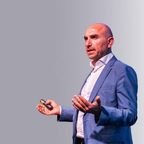
Öztürk Taspinar
Keynote speaker and Advisor on AI, Innovation & Organizational Transformation Brussels, Belgium
Coaching for Change: Supporting Prison Staff from the Inside Out (PID053)
Thematic Workshop Sessions
Coaching for Change: Supporting Prison Staff from the Inside Out (PID053)
2pm – 2.30pm GMT+03:00, 30 October 2025 ‐ 30 mins
Thematic Workshop Sessions
Spark Inside defines coaching as a facilitated conversation that empowers individuals and groups to discover their own solutions. Unlike mentoring, coaching avoids giving advice, instead fostering self-sufficiency, independence, and personal responsibility. Using techniques such as powerful questioning and thought-provoking prompts, coaching supports transformation and goal achievement for those living and working in prison environments.
Speakers

Tom Currie
Head of Impact and Innovation, Spark Inside Coaching in Prison, England, United Kingdom

Professor Karen Harrison
Professor of Law and Penal Justice, University of Lincoln, England, United Kingdom
The Power of Holistic Reintegration (PID207)
Thematic Workshop Sessions
The Power of Holistic Reintegration (PID207)
2pm – 2.30pm GMT+03:00, 30 October 2025 ‐ 30 mins
Thematic Workshop Sessions
By offering one point of entry and integrating services, G26 simplifies the reintegration process and reduces time and cost - while strengthening outcomes for people released from prison.
This model has gained wide national and international attention. Delegations, policymakers, and organizations from across Europe have visited the center, recognizing it as a leading example of practical, human-centered reintegration. The success has led to a formal cooperation agreement between the Norwegian Red Cross and the Directorate of Correctional Service to expand re-entry centers to additional cities across Norway. In this presentation, we share lessons learned, results achieved, and what it takes to build real bridges between systems, sectors, and people. Whether you work in corrections, social policy, or community development - this is a session for anyone interested in what happens after prison, and how to do it better.
Speakers


Launching the First Data-Driven Global Tool to Measure the Risk of Torture and Ill-Treatment: OMCT's Global Torture Index (PID091)
Thematic Workshop Sessions
Launching the First Data-Driven Global Tool to Measure the Risk of Torture and Ill-Treatment: OMCT's Global Torture Index (PID091)
2pm – 2.30pm GMT+03:00, 30 October 2025 ‐ 30 mins
Thematic Workshop Sessions
The Index evaluates national legal systems, public policies, and their real-world effects, comparing them against international human rights standards. It aims to inform governments, international organizations, and the public through an interactive and accessible online platform. The Index not only quantifies risk but also provides qualitative insights gathered from local civil society organisations and human rights defenders, highlighting systemic issues, good practices, and survivor stories. With its comprehensive analysis, the Index serves as a platform to identify concerning country practices, root causes, and trends over the years, and highlight priority areas for advocacy strategies. It showcases stories from survivors and recognises good practices by governments and civil society, fostering encouragement for greater human rights compliance.
Speakers

Cecilia de Armas
OMCT Global Torture Index Coordinator, World Organisation Against Torture (OMCT), Switzerland

Honest Ofor
Senior Programme Officer, Prisoners Rehabilitation and Welfare Action, Nigeria

Substance Science: Medication for Improving Substance Use Disorder Treatment and Reducing Overdose in Corrections (PID048)
Thematic Workshop Sessions
Substance Science: Medication for Improving Substance Use Disorder Treatment and Reducing Overdose in Corrections (PID048)
2pm – 2.30pm GMT+03:00, 30 October 2025 ‐ 30 mins
Thematic Workshop Sessions
Speakers

Humanisation of Workplace Wellbeing: A new conceptual model for prisons (PID119)
Thematic Workshop Sessions
Humanisation of Workplace Wellbeing: A new conceptual model for prisons (PID119)
2pm – 2.30pm GMT+03:00, 30 October 2025 ‐ 30 mins
Thematic Workshop Sessions
Speakers

Building a Framework for a Staff Wellness Program (PID055)
Thematic Workshop Sessions
Building a Framework for a Staff Wellness Program (PID055)
2.15pm – 3pm GMT+03:00, 30 October 2025 ‐ 45 mins
Thematic Workshop Sessions
The PA DOC model
Speakers

From Surviving to Thriving: A Proven Model for Staff Wellbeing in Modern Corrections (PID310)
Thematic Workshop Sessions
From Surviving to Thriving: A Proven Model for Staff Wellbeing in Modern Corrections (PID310)
2.30pm – 3pm GMT+03:00, 30 October 2025 ‐ 30 mins
Thematic Workshop Sessions
Despite overwhelming evidence that achievable, effective, proactive psychological support enhances wellbeing, safety and performance, prison services around the world still fail to adequately equip their people for this aspect of the job.
This session introduces a proven and practical framework - The Model of Dynamic Adaptation™ - developed through research with frontline prison staff and used successfully across UK justice settings. It demystifies the complexity of resilience and provides an intuitive structure to prevent psychological harm, promote individual and organisational thriving, and embed a culture of shared responsibility for wellbeing.
Whether you're a frontline officer, operational manager, or strategic leader, this approach enables you to recognise, respond to, and effectively manage dynamic pressures - before they cause damage. The accompanying Assessment of Dynamic Adaptation™ offers clear, evidence-based recommendations that deliver measurable outcomes, including significant returns on investment in staff wellbeing.
This is not just a model. It is a movement - designed to transform how we care for those who serve in some of the toughest environments.
Speakers

From Prison Back Home: The Uganda Prisons Service Experience (PID004)
Thematic Workshop Sessions
From Prison Back Home: The Uganda Prisons Service Experience (PID004)
2.30pm – 3pm GMT+03:00, 30 October 2025 ‐ 30 mins
Thematic Workshop Sessions
1. Holding Discharge Boards in the Prison
2. Making Pre visits to the community to prepare the members to receive back the prisoner.
3. Giving feedback to the prisoner
4. Providing reintegration packages to deserving prisoners
4. Release of the prisoner
5. Following up to ensure successful reintegration.
Speakers

Sarah Nalwanga
Assistant Commissioner Community Corrections, Uganda Prisons Service, Uganda
The Role of Communities in Corrections, Rehabilitation, and Reintegration: Perspectives from Nigeria (PID051)
Thematic Workshop Sessions
The Role of Communities in Corrections, Rehabilitation, and Reintegration: Perspectives from Nigeria (PID051)
2.30pm – 3pm GMT+03:00, 30 October 2025 ‐ 30 mins
Thematic Workshop Sessions
This presentation will unpack the legal structures, grassroots initiatives, and real-world challenges of implementing effective community corrections in Nigeria, highlighting the gaps in resources, societal perceptions, and policy support. More importantly, we will explore practical solutions, including stronger legislative backing, increased public awareness, and multi-stakeholder collaboration that can drive sustainable change.
Join us to understand how a shift from punitive isolation to community-centered restorative justice has helped to create safer neighbourhoods, reduce recidivism, and build a more inclusive society. Be part of the conversation that redefines justice - where community is not just a backdrop but a powerful agent of change.
Speakers

Honest Ofor
Senior Programme Officer, Prisoners Rehabilitation and Welfare Action, Nigeria
Incarceration's Impact on Mental Health: A Systematic Review and Analysis of International Systems (SMD= -1.39) (PID024)
Thematic Workshop Sessions
Incarceration's Impact on Mental Health: A Systematic Review and Analysis of International Systems (SMD= -1.39) (PID024)
2.30pm – 3pm GMT+03:00, 30 October 2025 ‐ 30 mins
Thematic Workshop Sessions
- Mandatory mental health screenings at intake
- Trauma-informed prison design to reduce harm
- Staff training aligned with WHO standards
Speakers

Azizul Haq Kader Moideen
Senior Executive, Correctional Health, Clinical Quality and Compliance, Changi General Hospital, Singapore
Understanding the Health and Wellbeing of Senior Operational Managers in the Prison Governors' Association Scotland (PGAS) (PID186)
Thematic Workshop Sessions
Understanding the Health and Wellbeing of Senior Operational Managers in the Prison Governors' Association Scotland (PGAS) (PID186)
2.30pm – 3pm GMT+03:00, 30 October 2025 ‐ 30 mins
Thematic Workshop Sessions
Speakers
Lauren Smith
Associate Professor in Forensic Psychology, University of Lincoln, United Kingdom
Coffee Break and Exhibition
Break and Exhibition
Coffee Break and Exhibition
3pm – 3.30pm GMT+03:00, 30 October 2025 ‐ 30 mins
Break and Exhibition
Better Than Arrival Corrections: Enhancing Well-Being Through Empowered Lived Experience (PID105)
Plenary Session
Better Than Arrival Corrections: Enhancing Well-Being Through Empowered Lived Experience (PID105)
3.30pm – 4pm GMT+03:00, 30 October 2025 ‐ 30 mins
Plenary Session
Speakers

Building Resilience in the Northern Ireland Prison Service (PID323)
Plenary Session
Building Resilience in the Northern Ireland Prison Service (PID323)
4pm – 4.30pm GMT+03:00, 30 October 2025 ‐ 30 mins
Plenary Session
Moderated by Natalie Boal, Executive Director, ICPA, AustraliaSpeakers

Beverley Wall
Director General, Northern Ireland Prison Service, Director, Reducing Offending, Department Of Justice NI
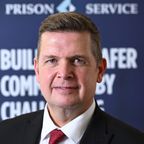
Invitation to Belfast - ICPA Annual Conference 2026
Plenary Session
Invitation to Belfast - ICPA Annual Conference 2026
4.30pm – 4.40pm GMT+03:00, 30 October 2025 ‐ 10 mins
Plenary Session
Moderated by Natalie Boal, Executive Director, ICPA, AustraliaSpeakers

Beverley Wall
Director General, Northern Ireland Prison Service, Director, Reducing Offending, Department Of Justice NI

Closing Remarks
Plenary Session
Closing Remarks
4.40pm – 4.45pm GMT+03:00, 30 October 2025 ‐ 5 mins
Plenary Session
Speakers

Host Closing Speech
Plenary Session
Host Closing Speech
4.45pm – 4.55pm GMT+03:00, 30 October 2025 ‐ 10 mins
Plenary Session
Moderated by Natalie Boal, Executive Director, ICPA, AustraliaSpeakers

Enis Yavuz YILDIRIM
Judge, General Director, General Directorate of Prison and Detention Houses, MoJ, Türkiye
Closing Speech
Plenary Session
Closing Speech
4.55pm – 5pm GMT+03:00, 30 October 2025 ‐ 5 mins
Plenary Session
Moderated by Natalie Boal, Executive Director, ICPA, AustraliaSpeakers

Friday 31 October
Marmara Women Closed Prison and Marmara Open Type Prison
Facility Visits
Marmara Women Closed Prison and Marmara Open Type Prison
8am – 1.30pm GMT+03:00, 31 October 2025 ‐ 5 hours 30 mins
Facility Visits
Kocaeli F Type High Security Closed Prison and Kocaeli Open Prison
Facility Visits
Kocaeli F Type High Security Closed Prison and Kocaeli Open Prison
8am – 2.30pm GMT+03:00, 31 October 2025 ‐ 6 hours 30 mins
Facility Visits
Karatepe Juvenile Closed Prison and Karatepe Open Prison
Facility Visits
Karatepe Juvenile Closed Prison and Karatepe Open Prison
8am – 2.30pm GMT+03:00, 31 October 2025 ‐ 6 hours 30 mins
Facility Visits
Ümraniye T Type Closed Prison and Istanbul Juvenile Reformatory House (Juvenile Open Type)
Facility Visits
Ümraniye T Type Closed Prison and Istanbul Juvenile Reformatory House (Juvenile Open Type)
8.30am – 12.30pm GMT+03:00, 31 October 2025 ‐ 4 hours
Facility Visits
Maltepe Juvenile Closed Prison and Maltepe Open Prison
Facility Visits
Maltepe Juvenile Closed Prison and Maltepe Open Prison
8.30am – 12.30pm GMT+03:00, 31 October 2025 ‐ 4 hours
Facility Visits





